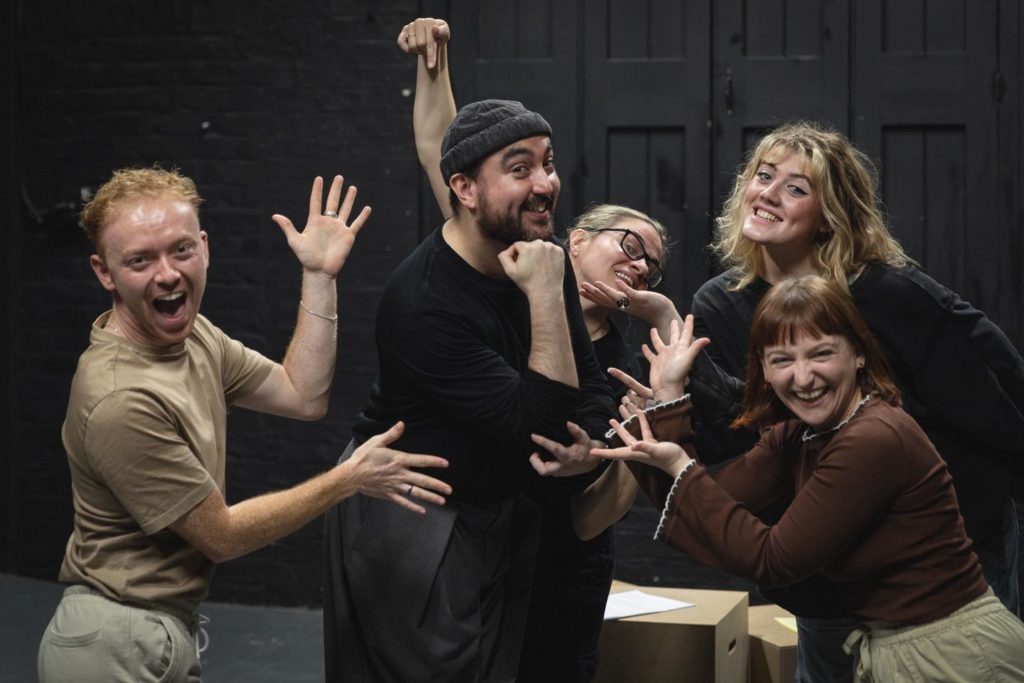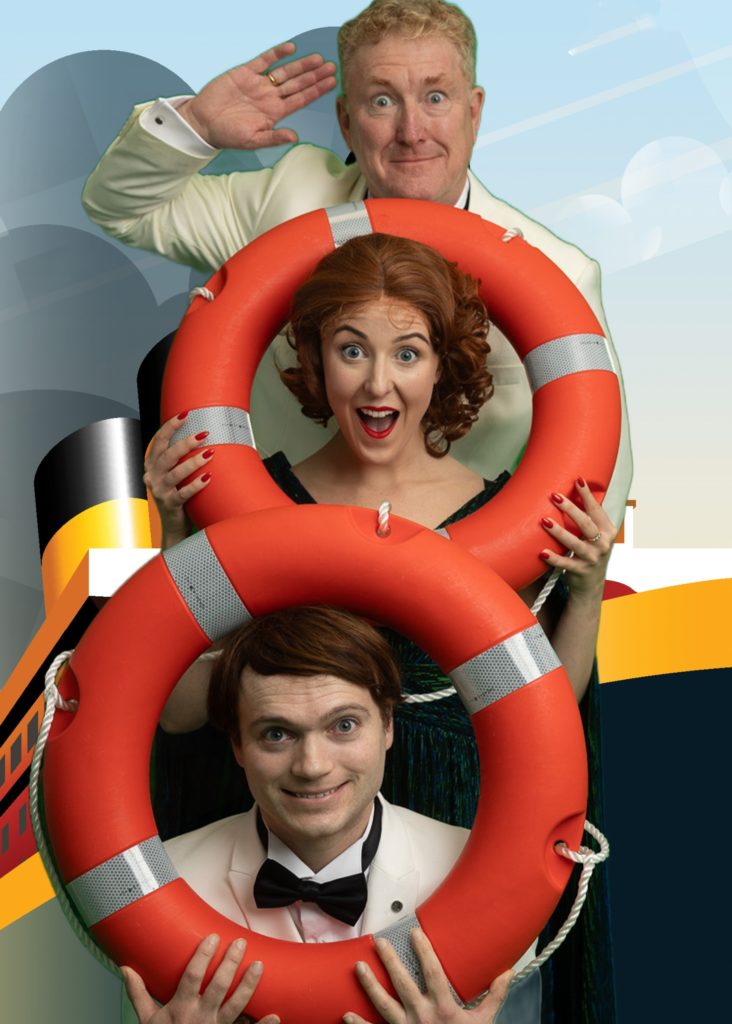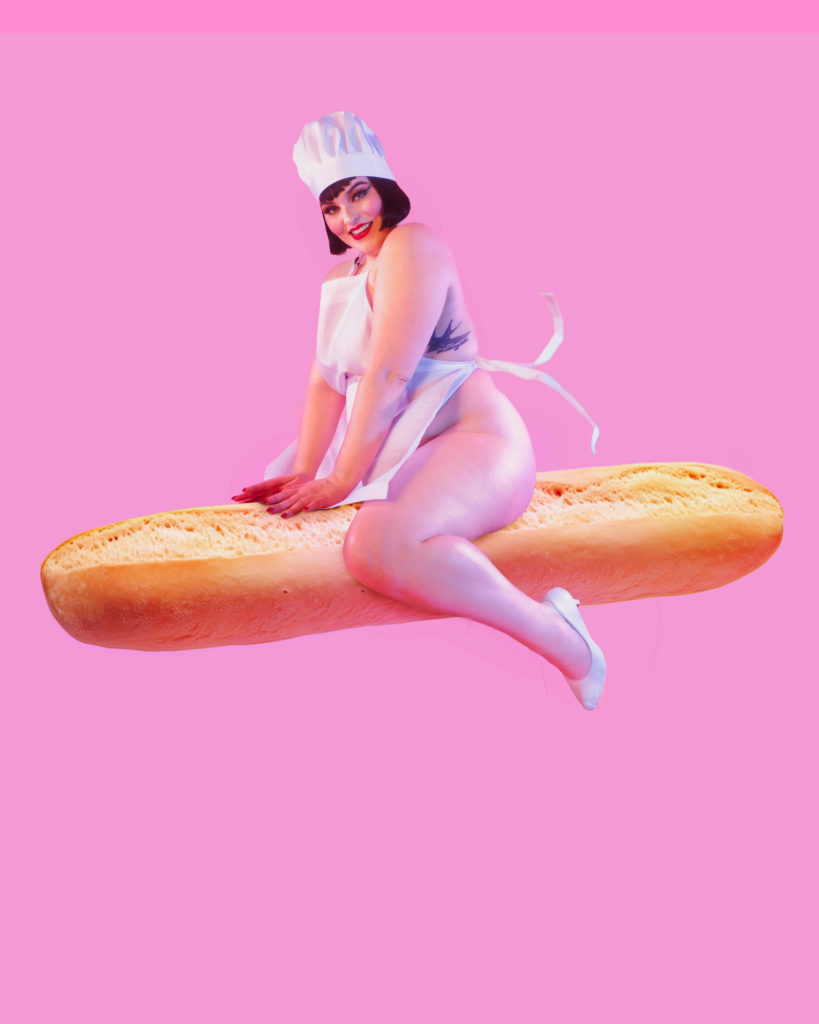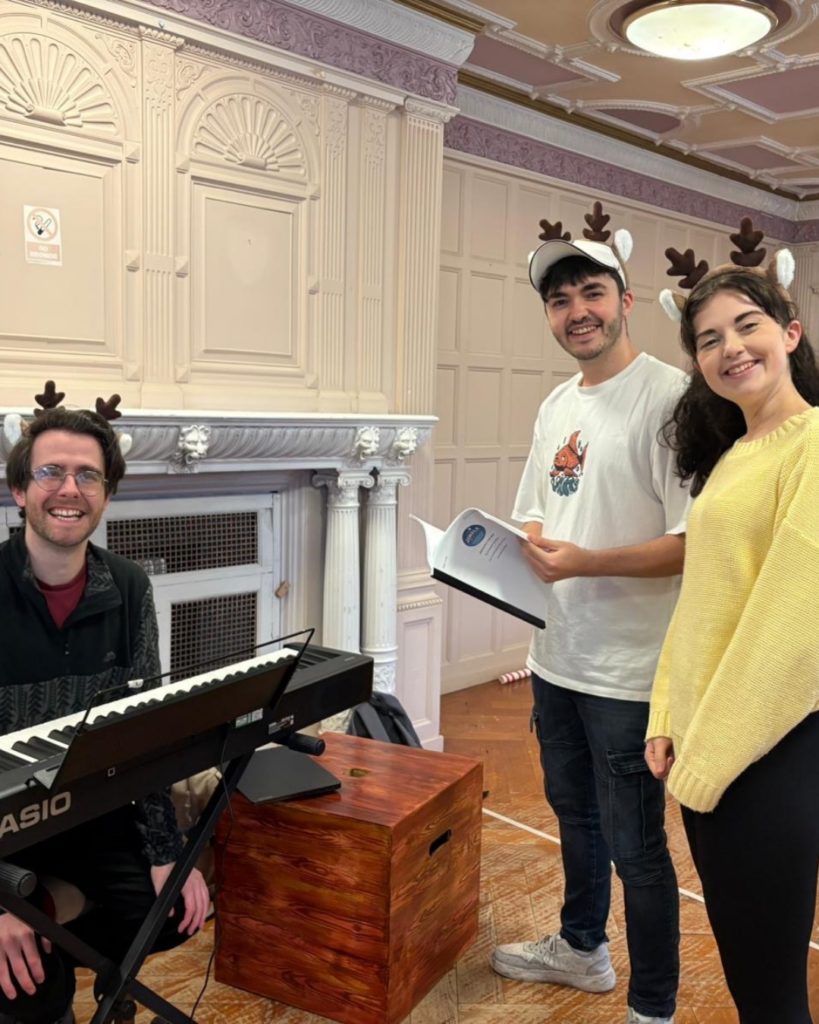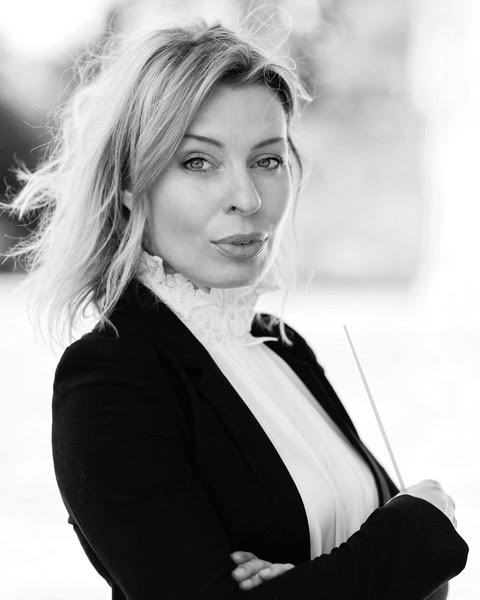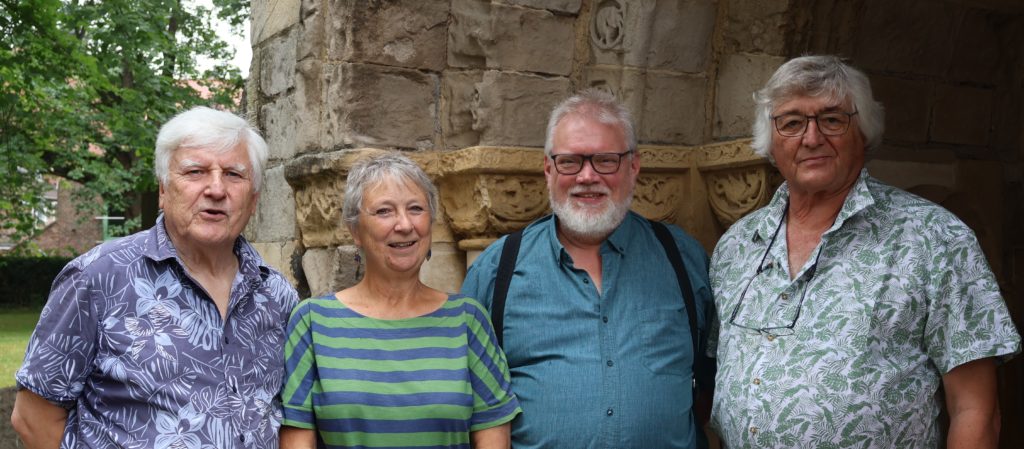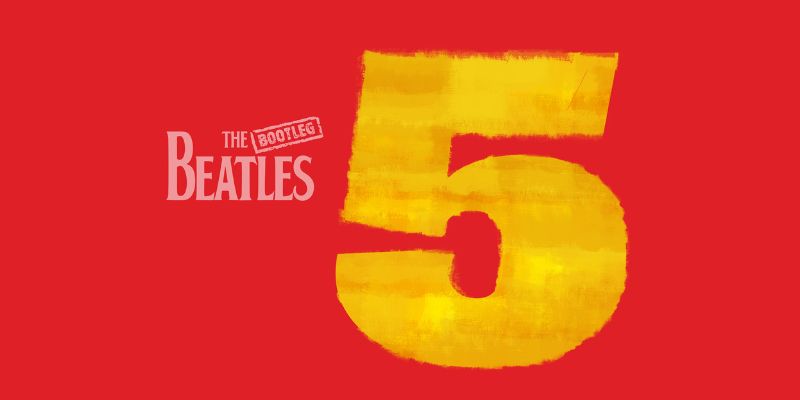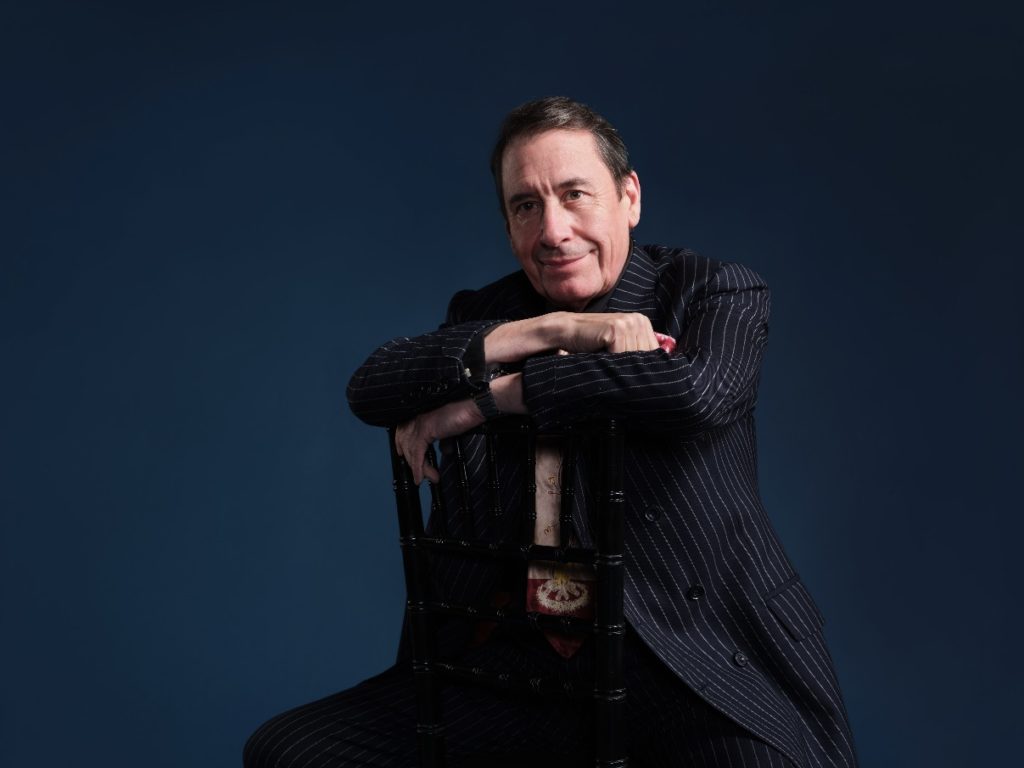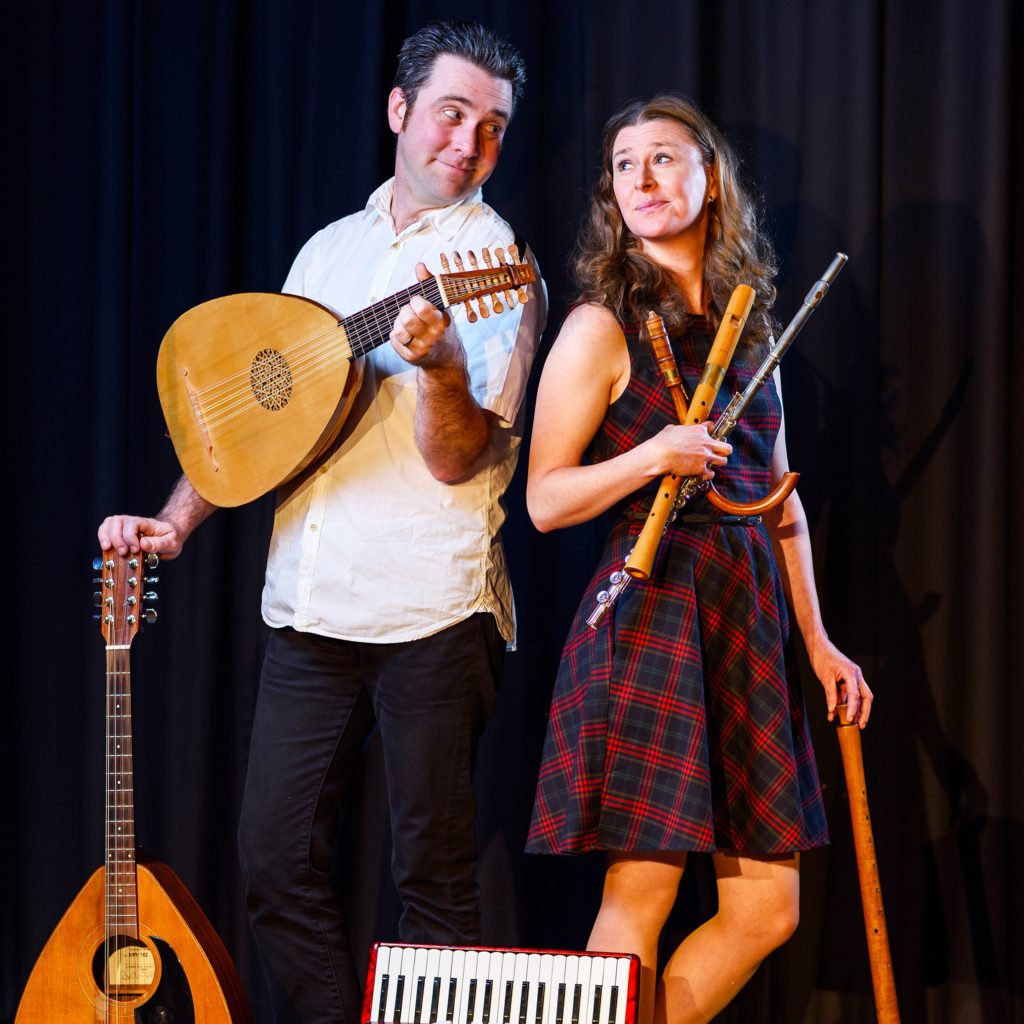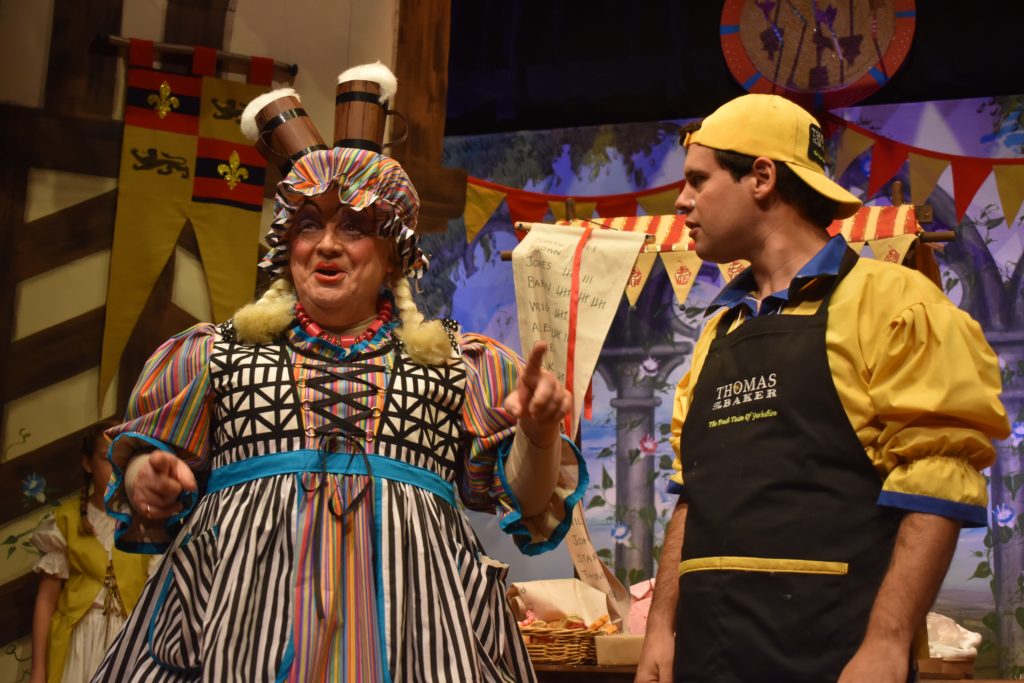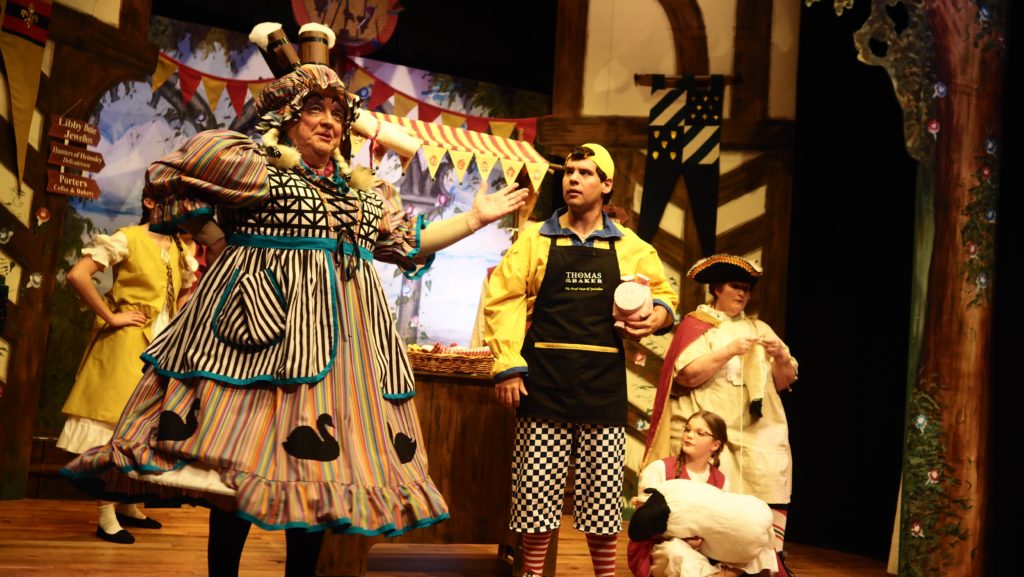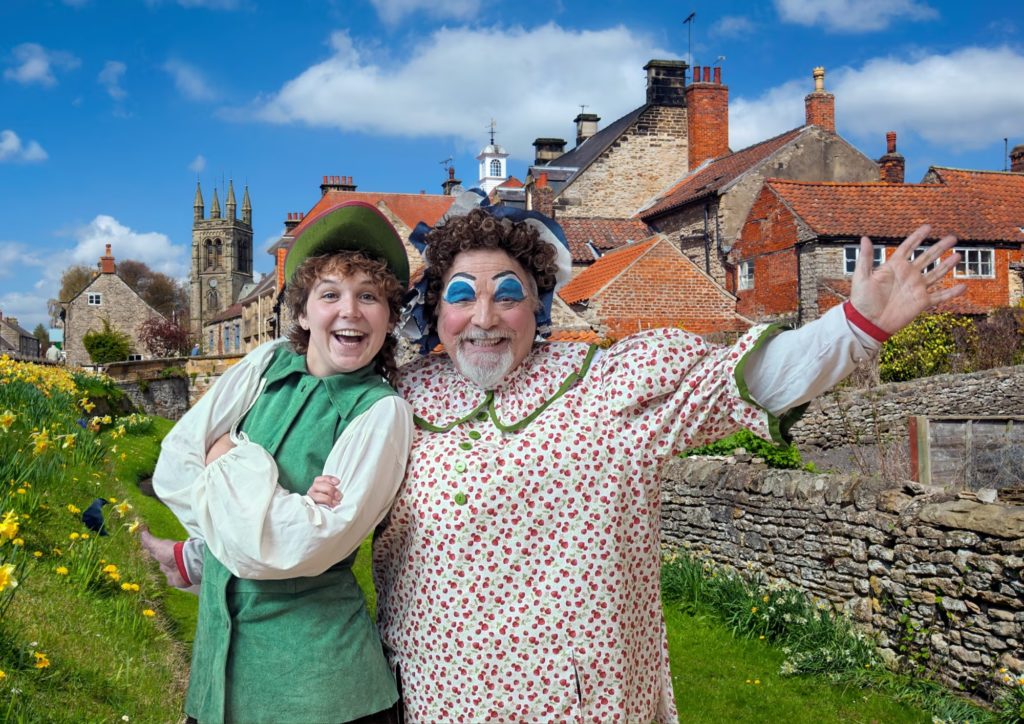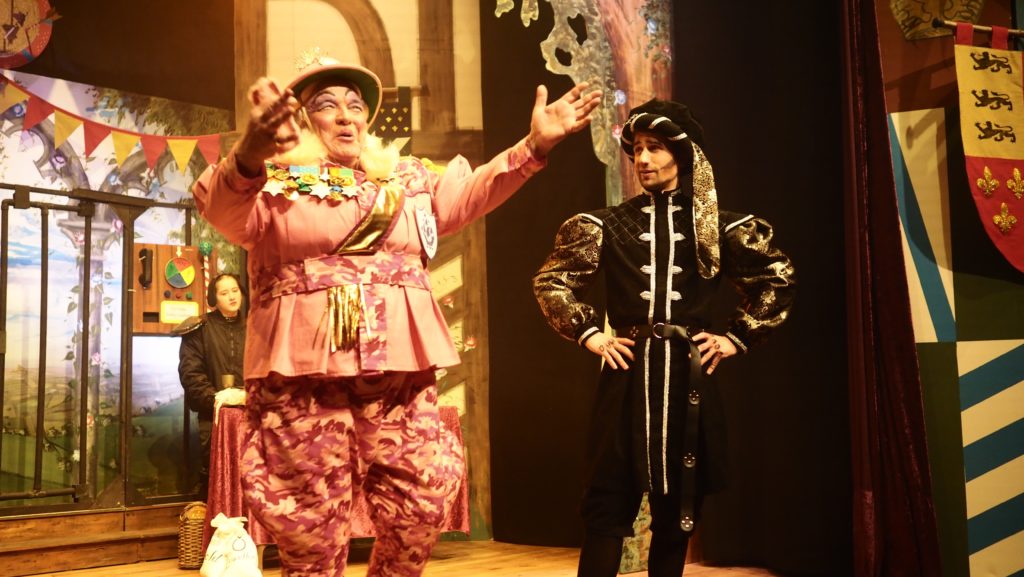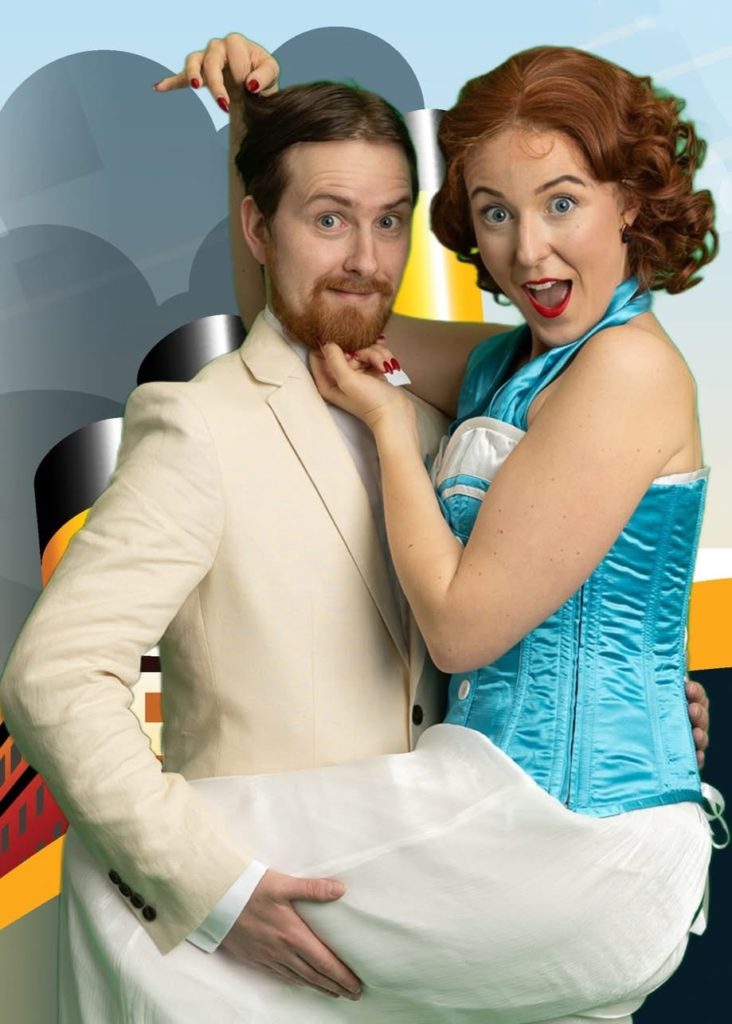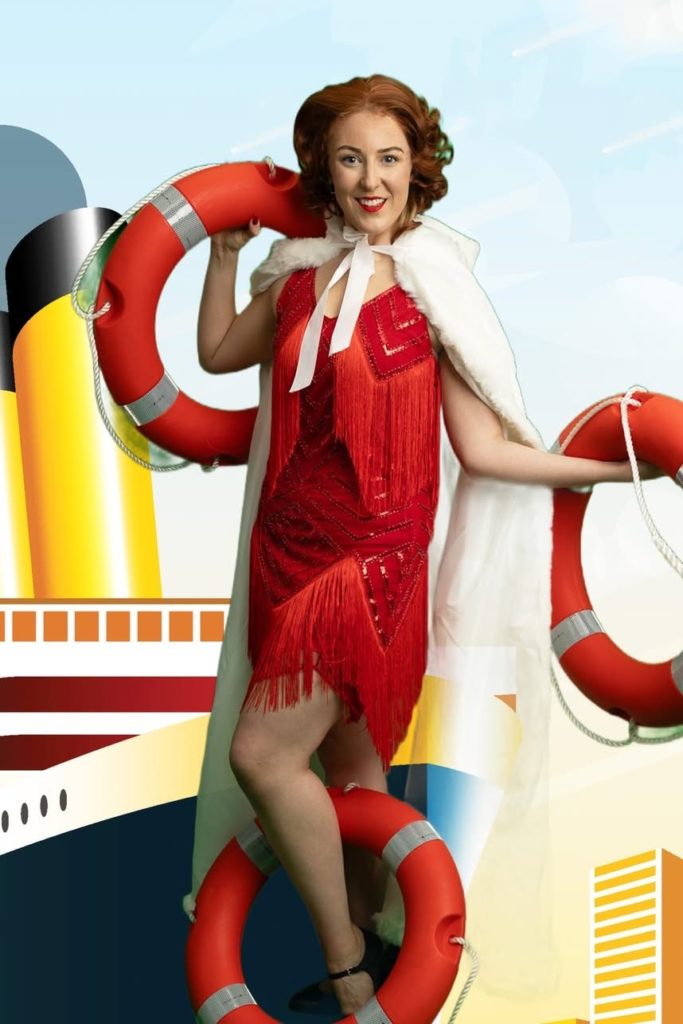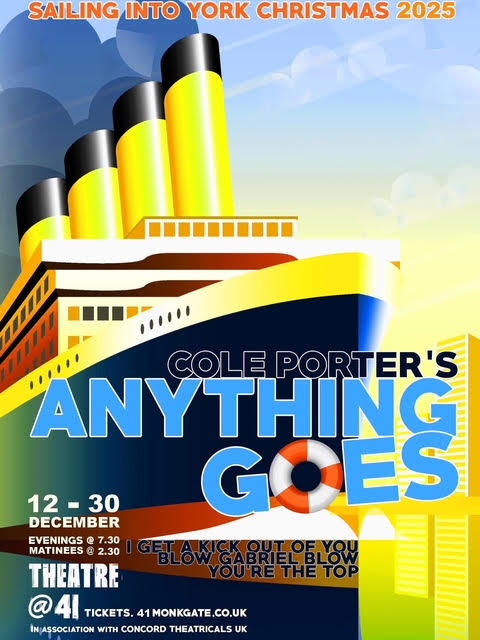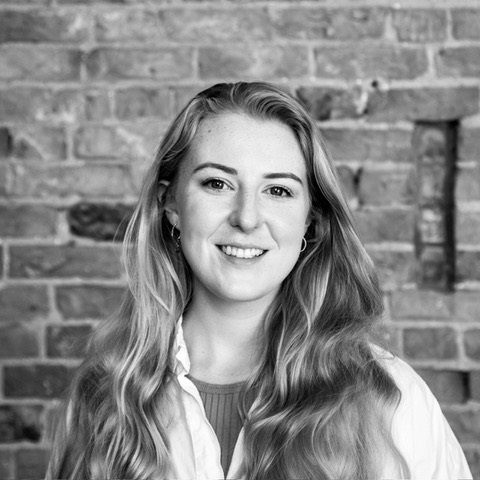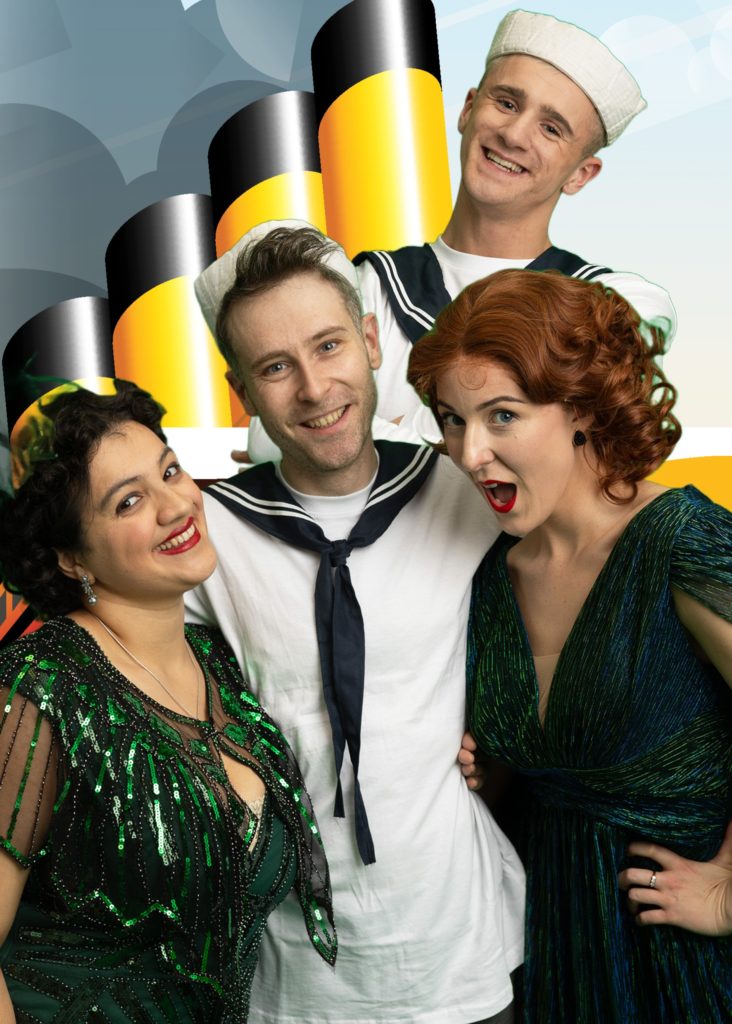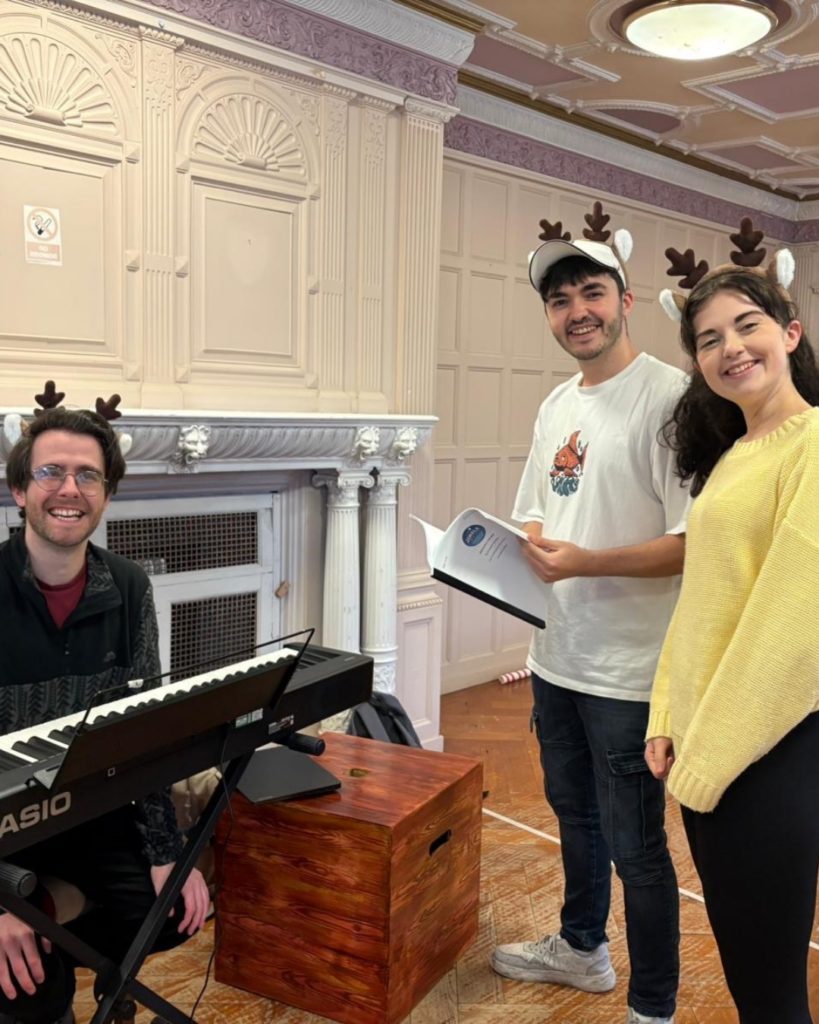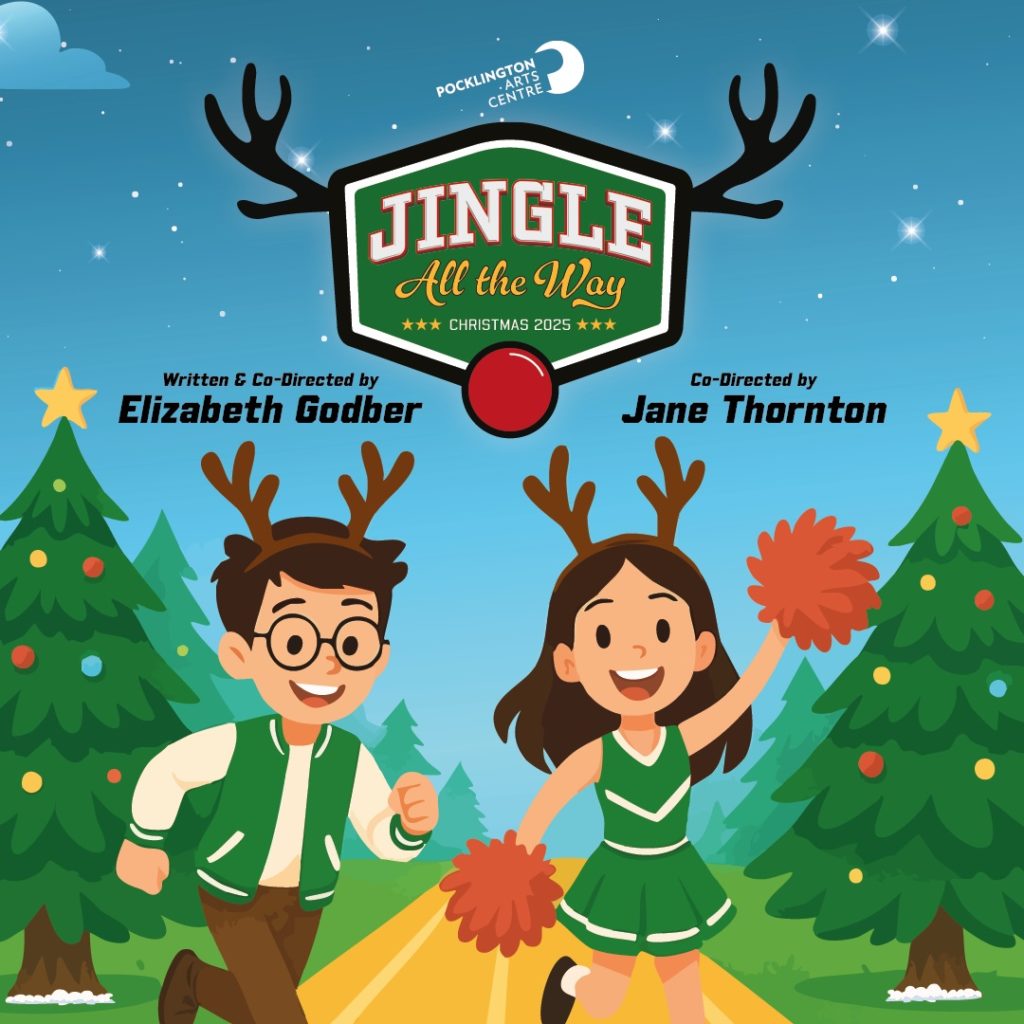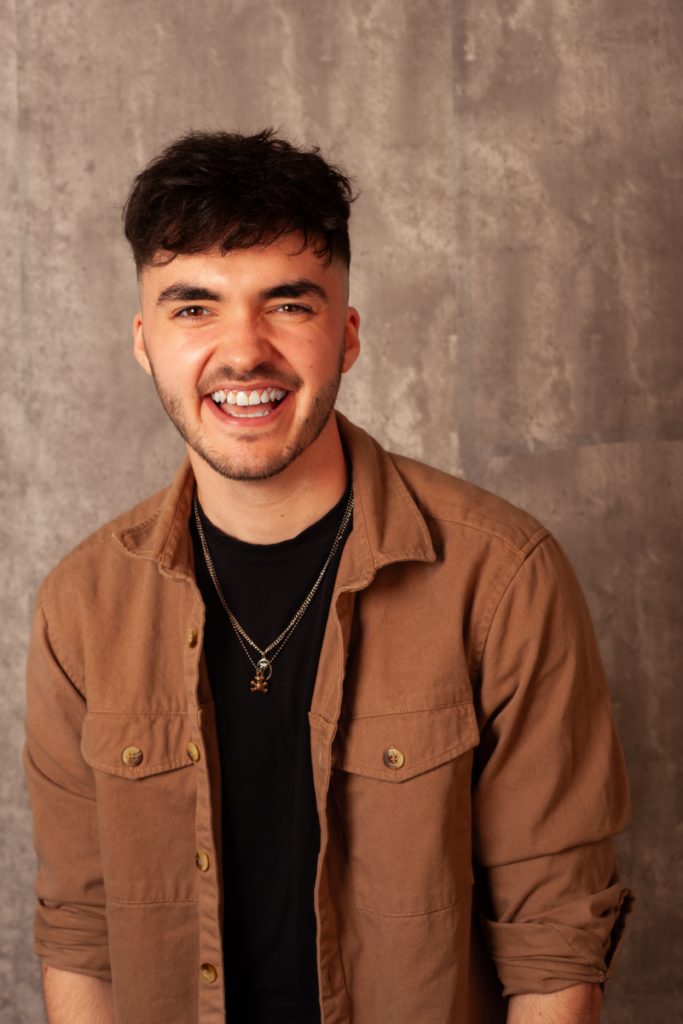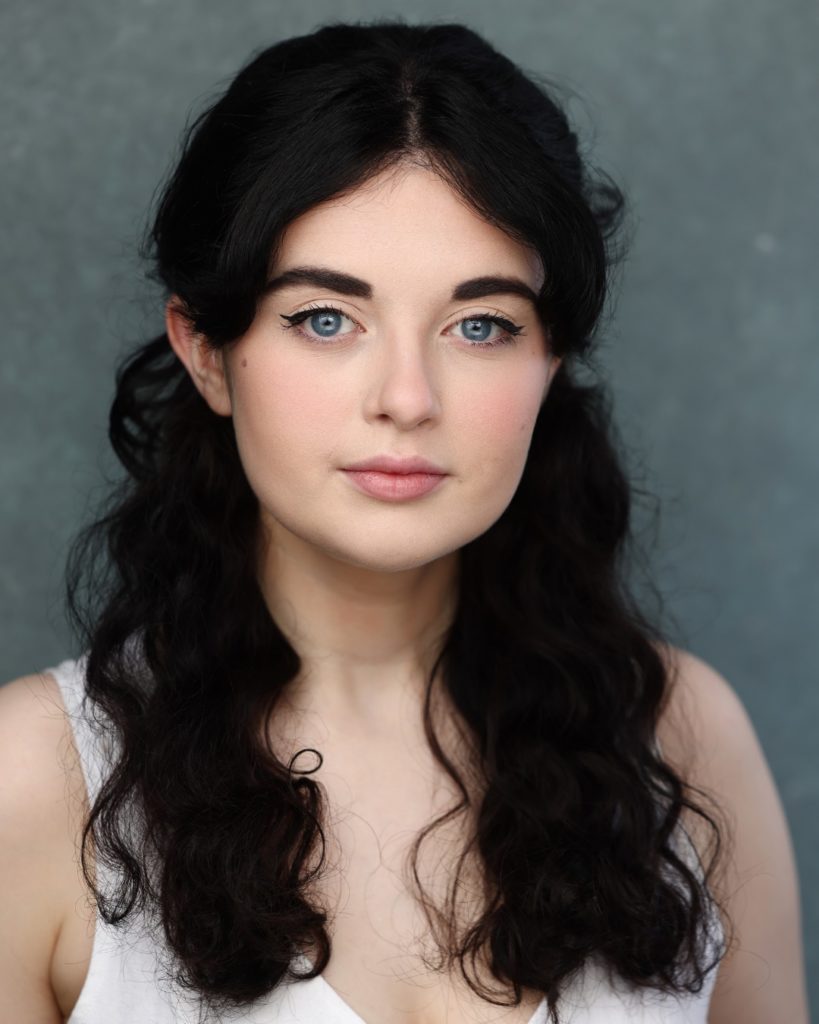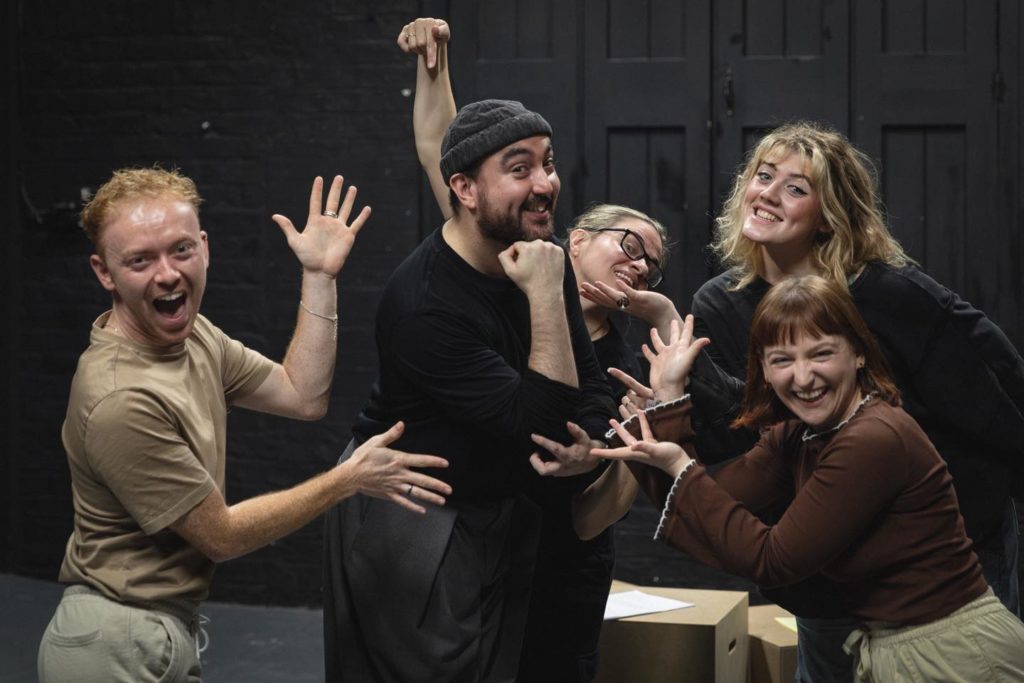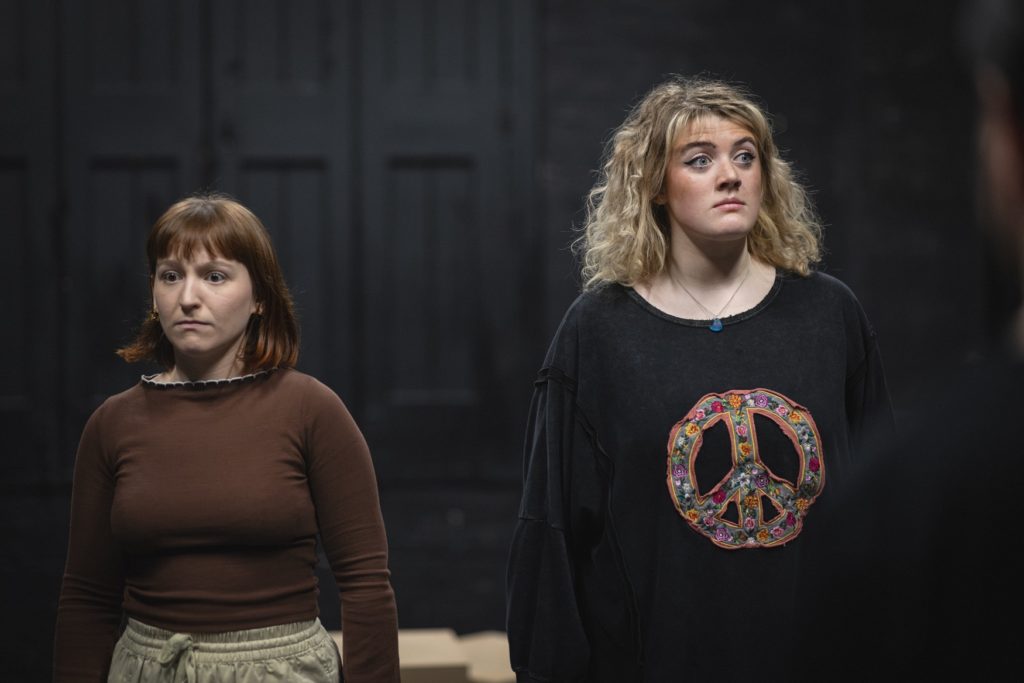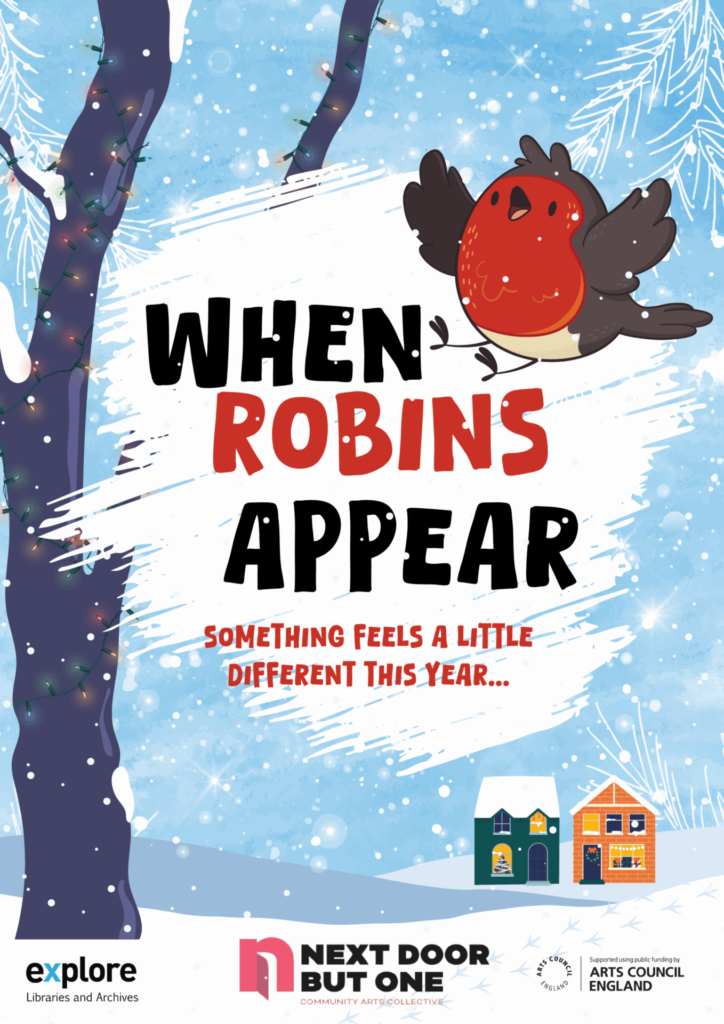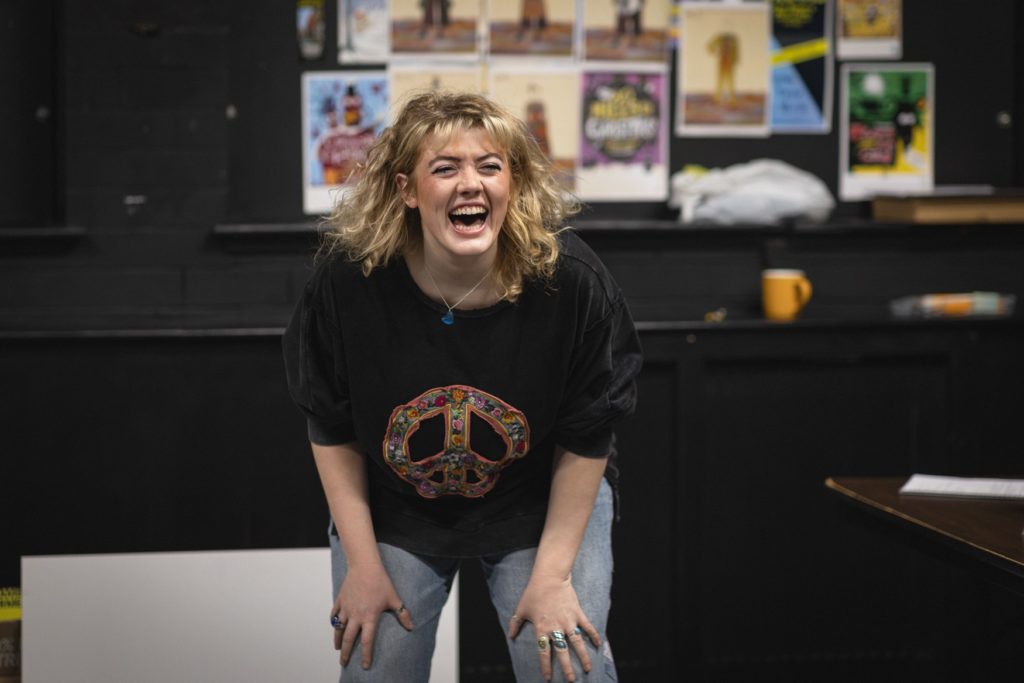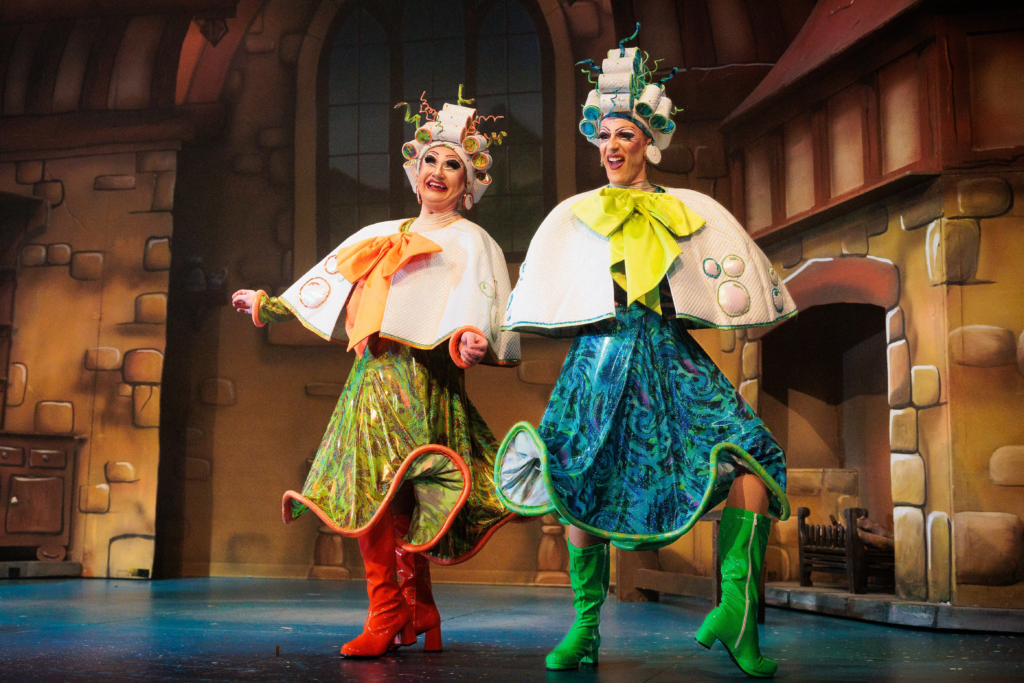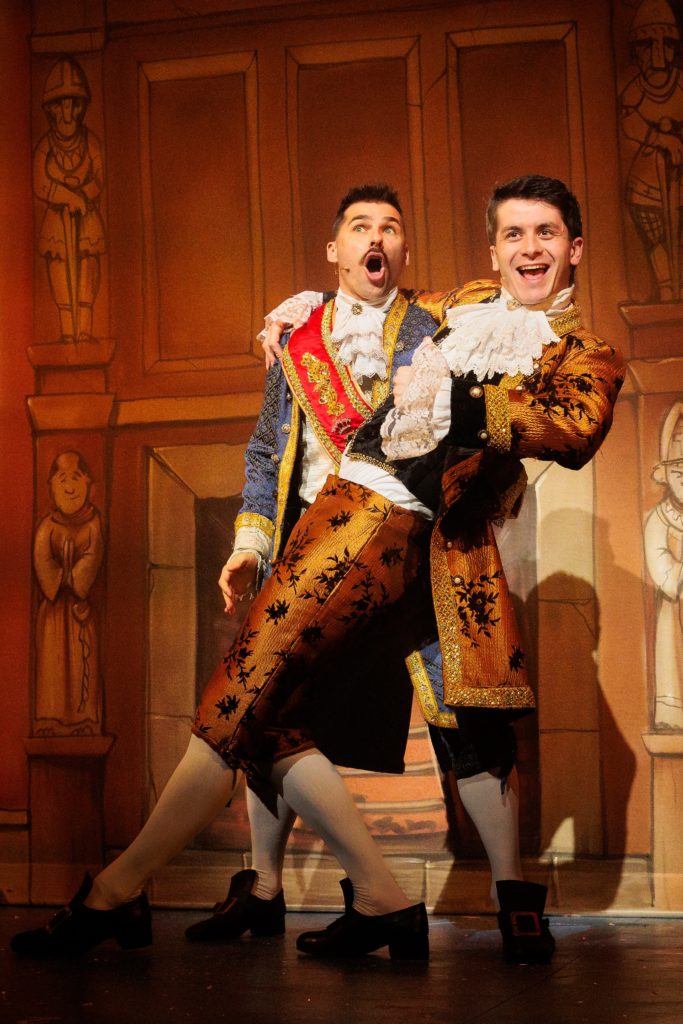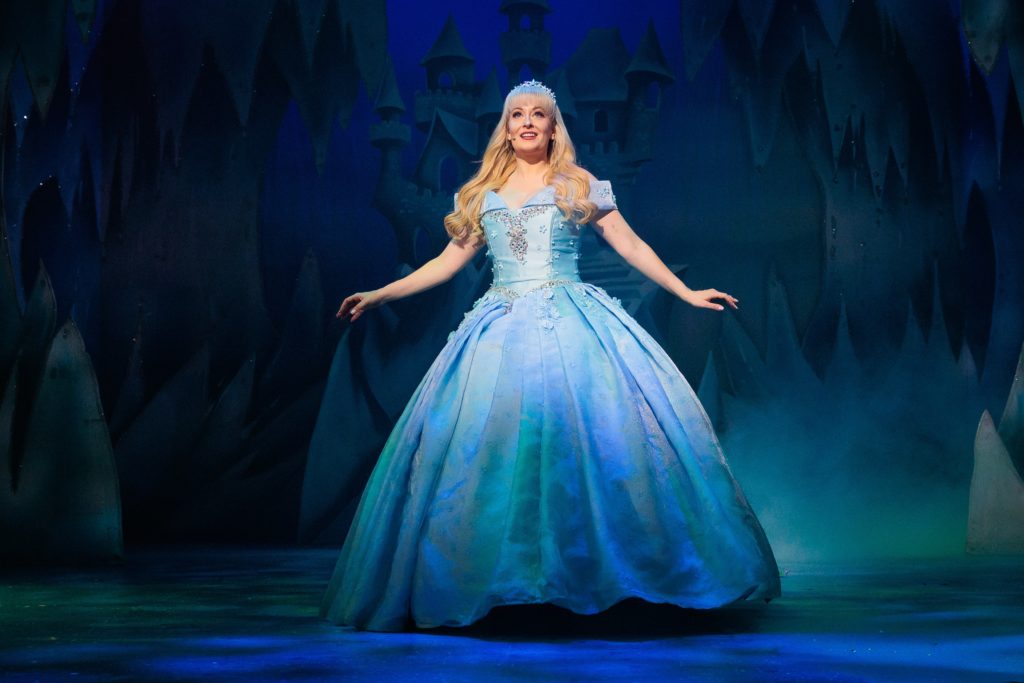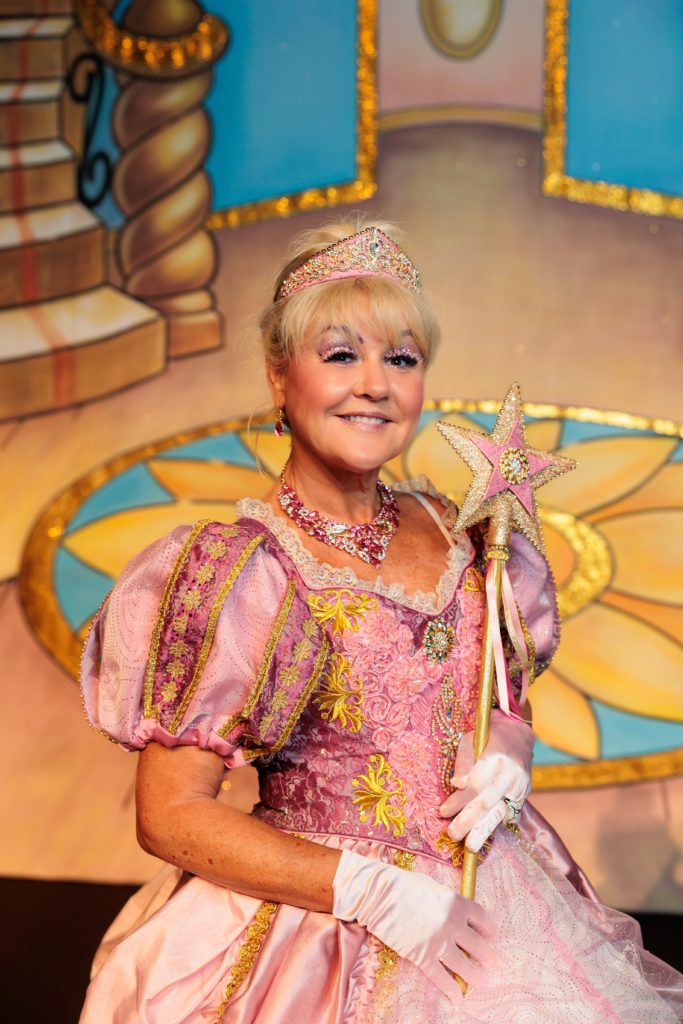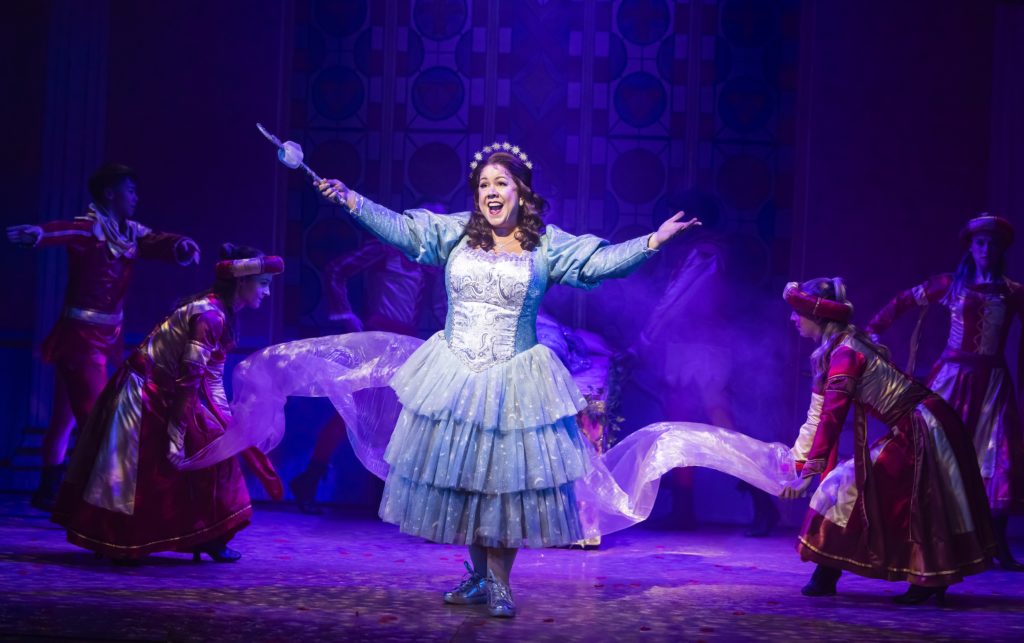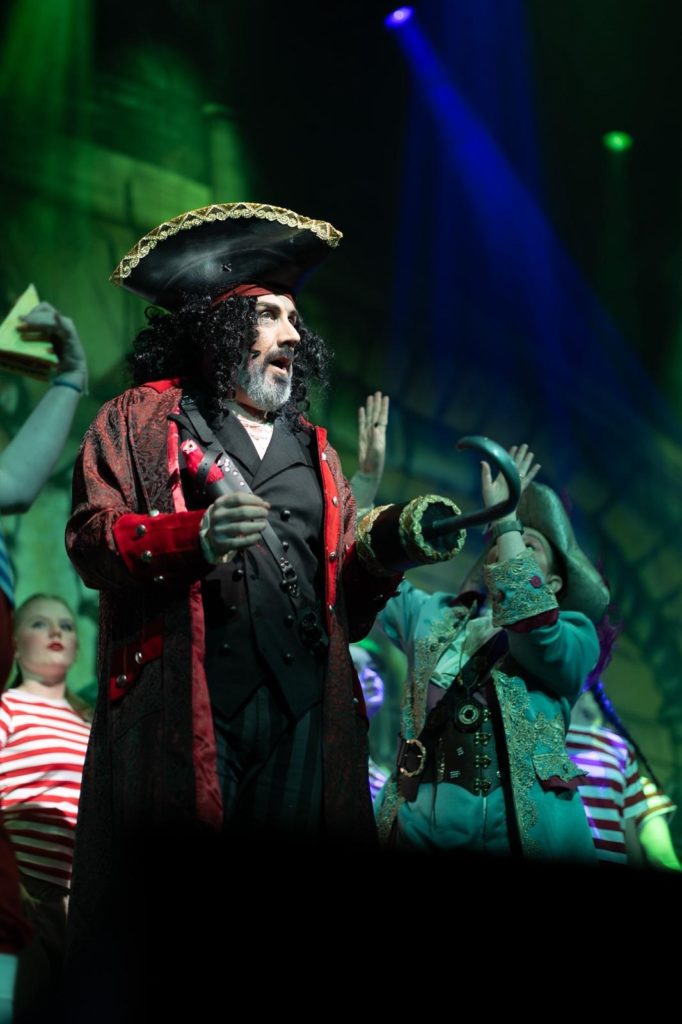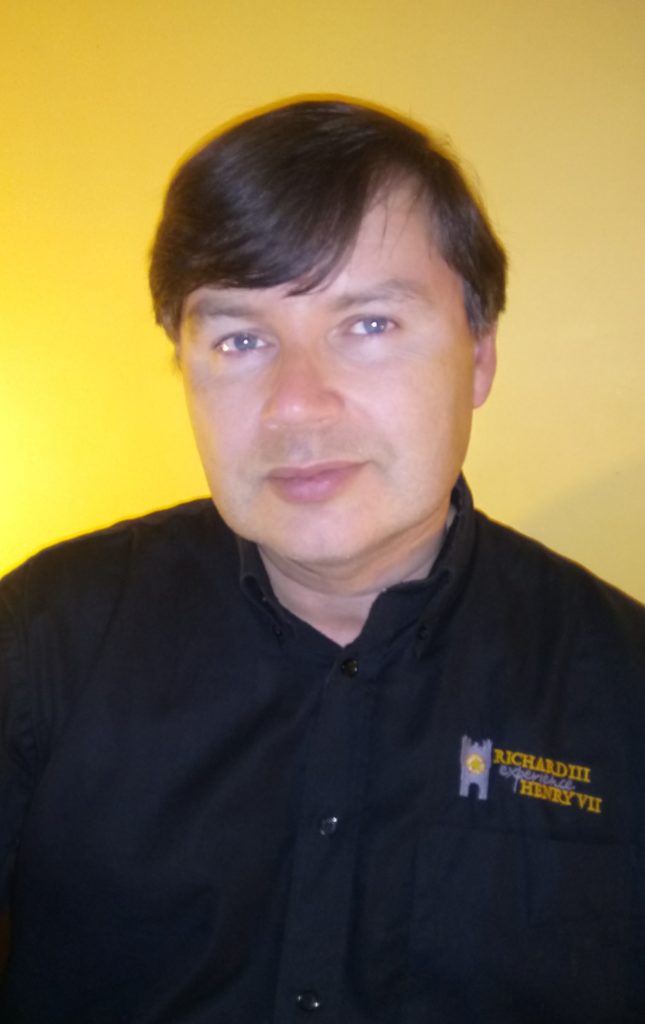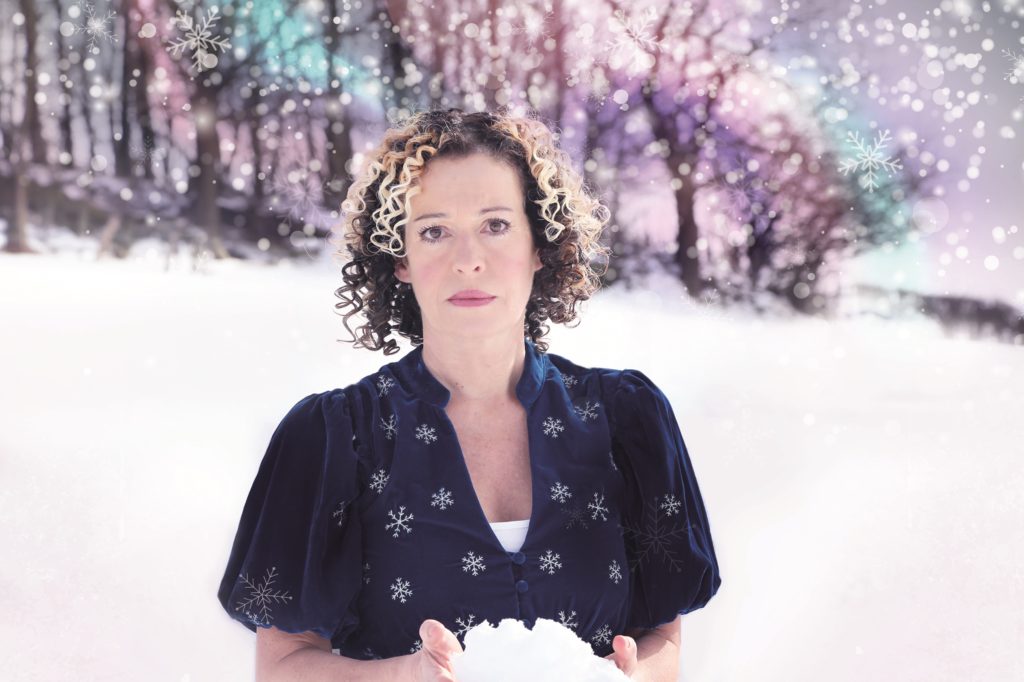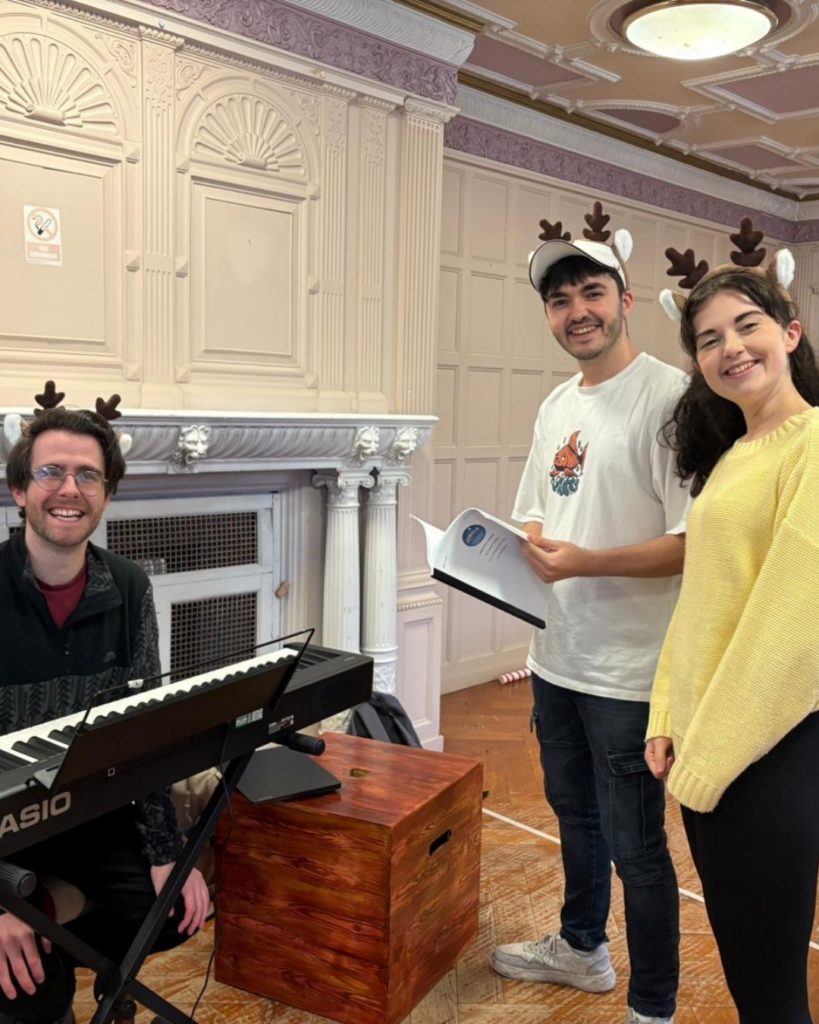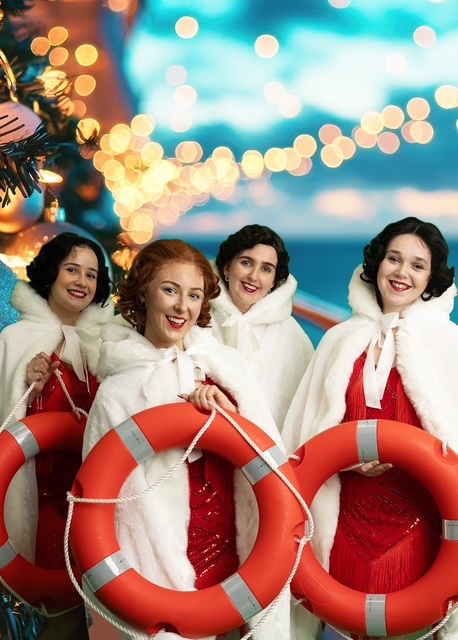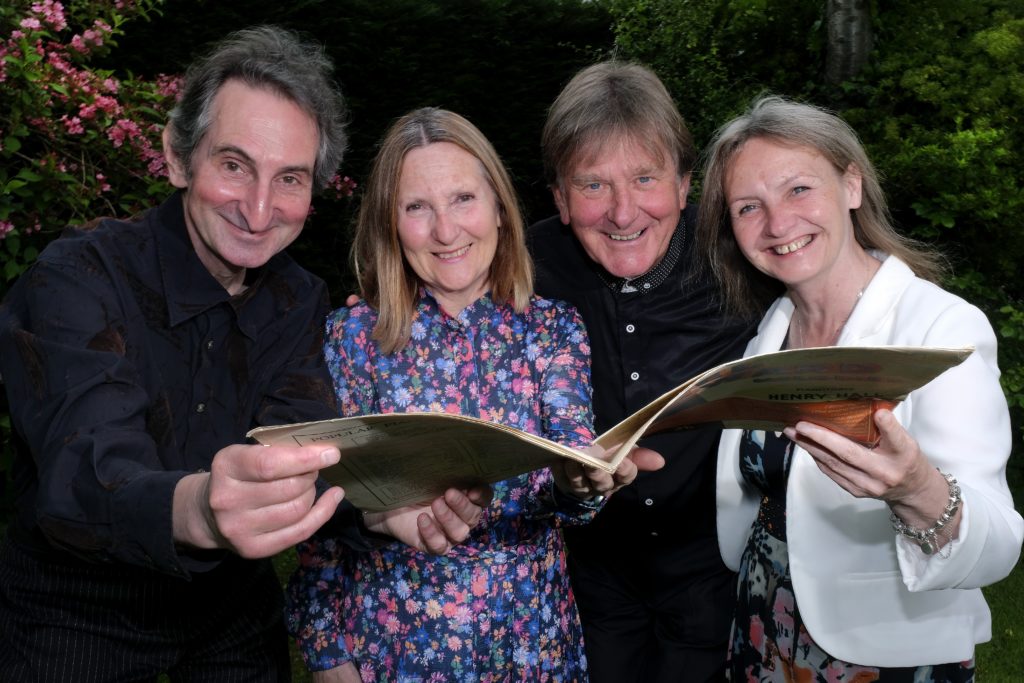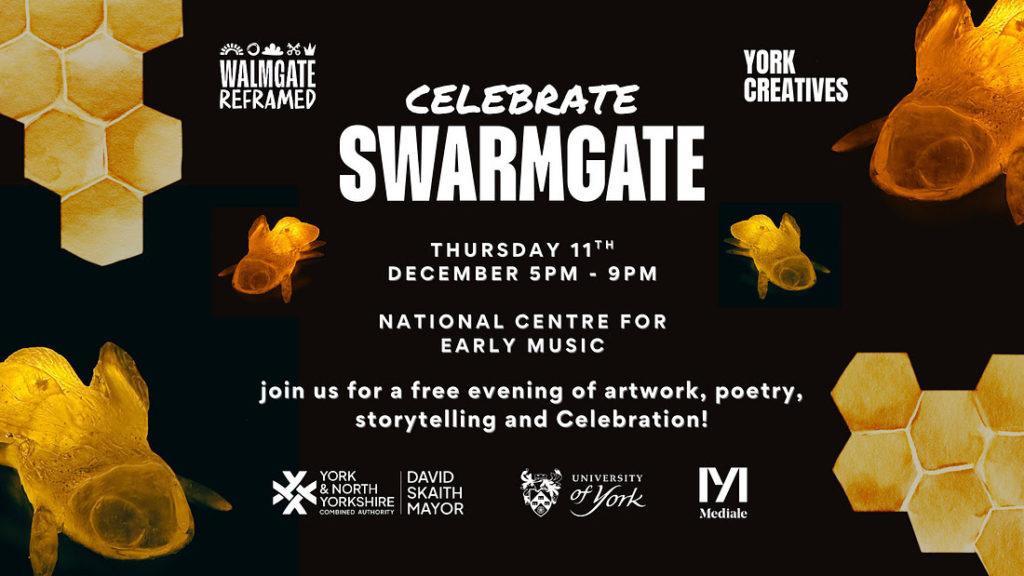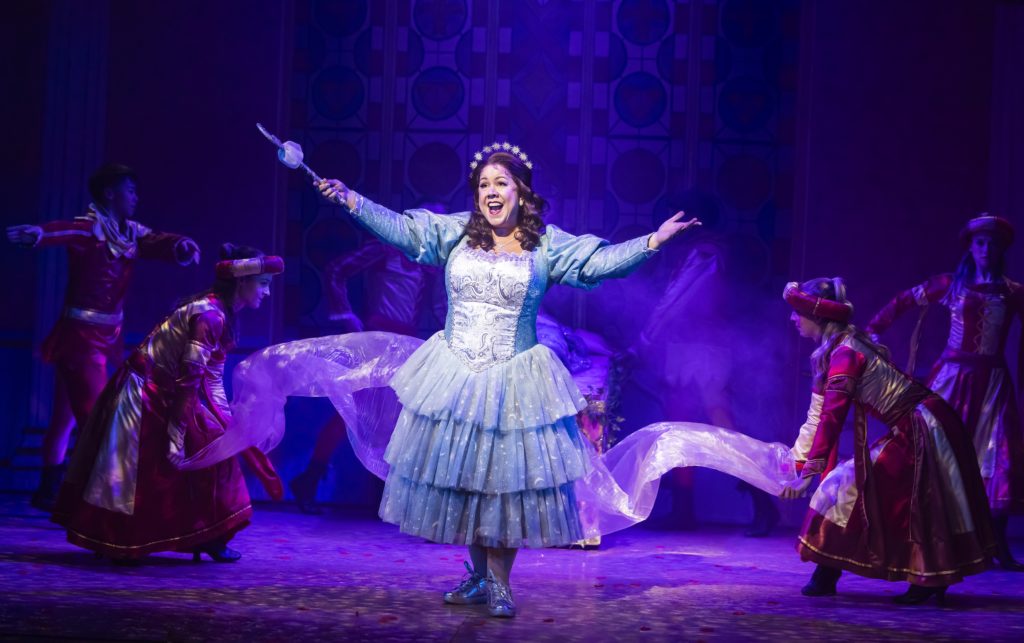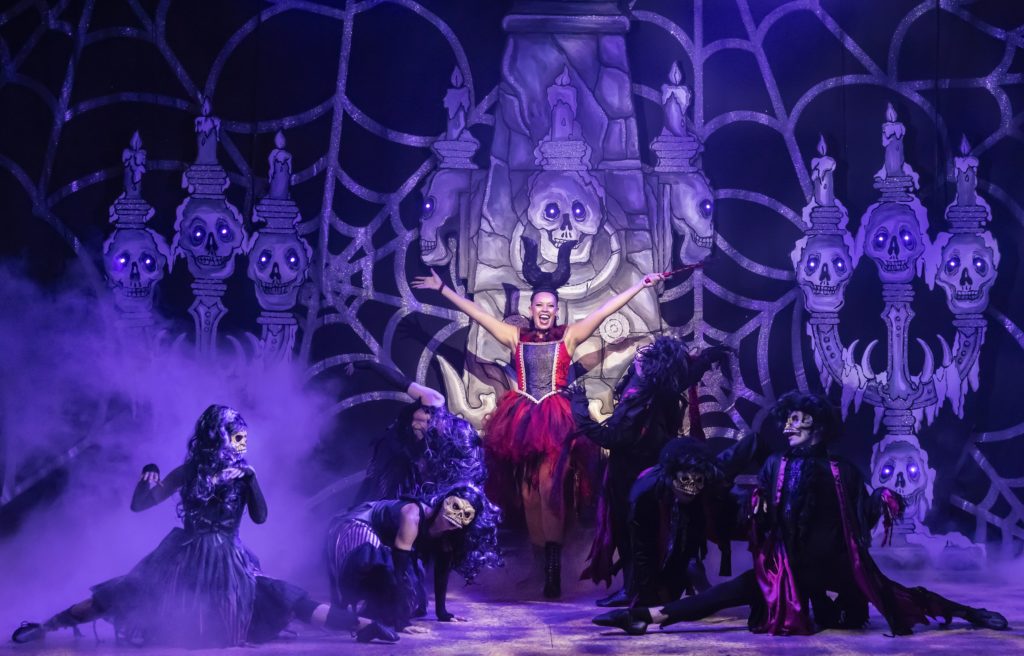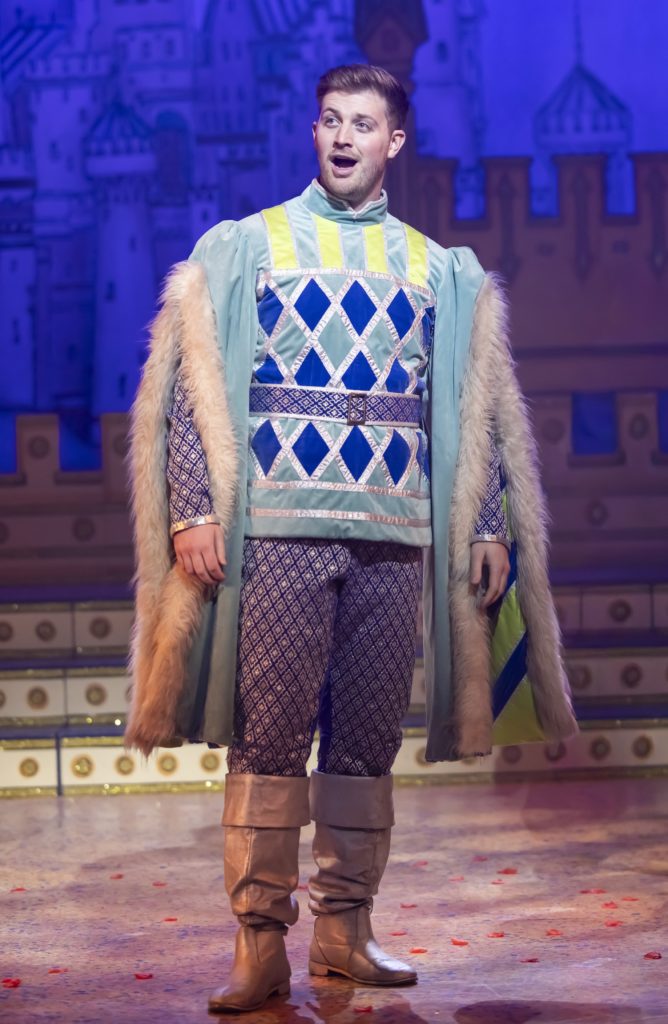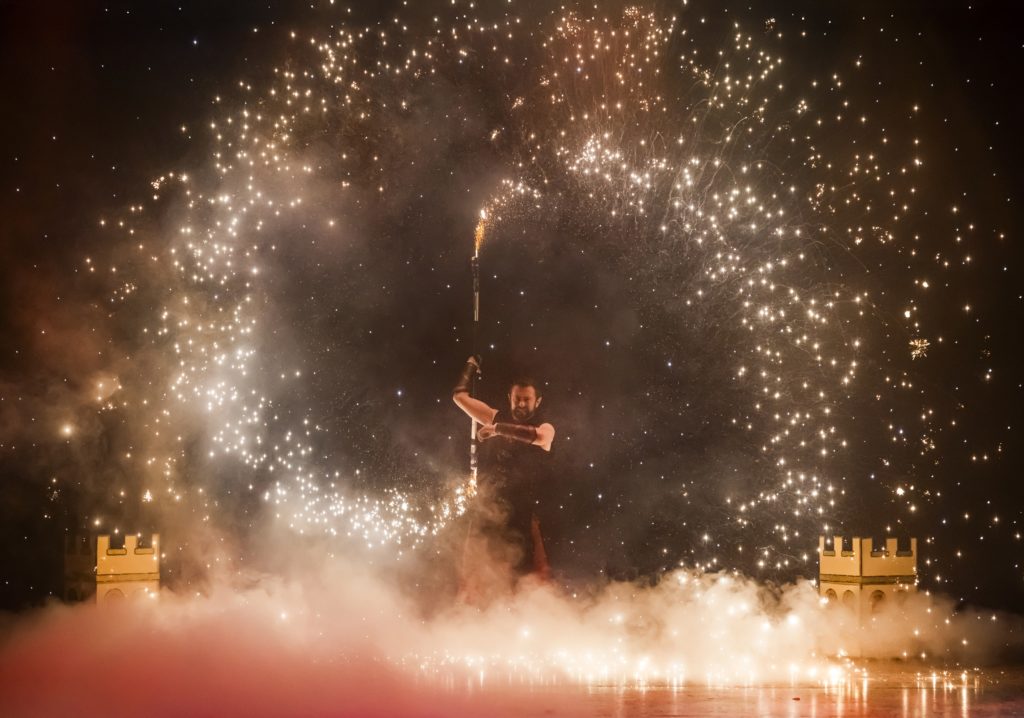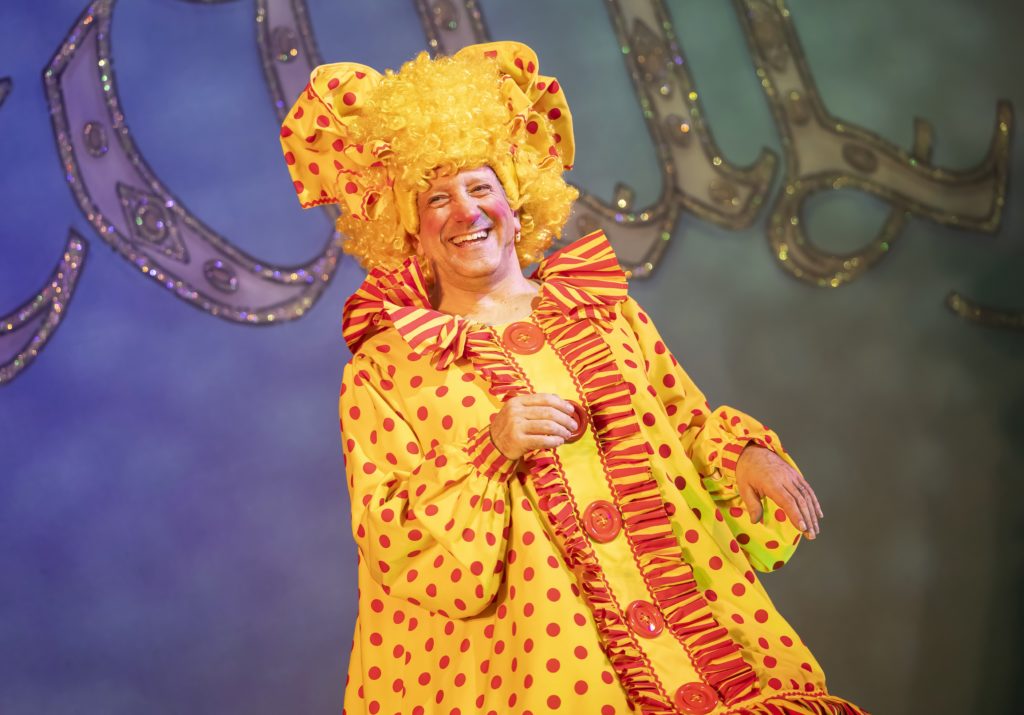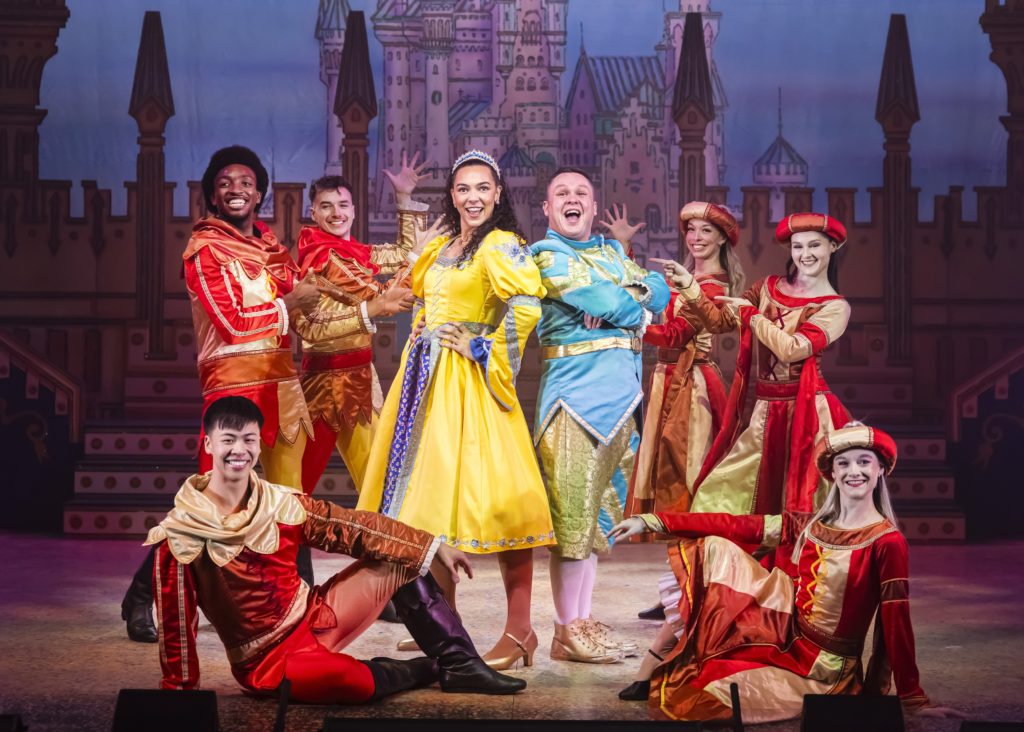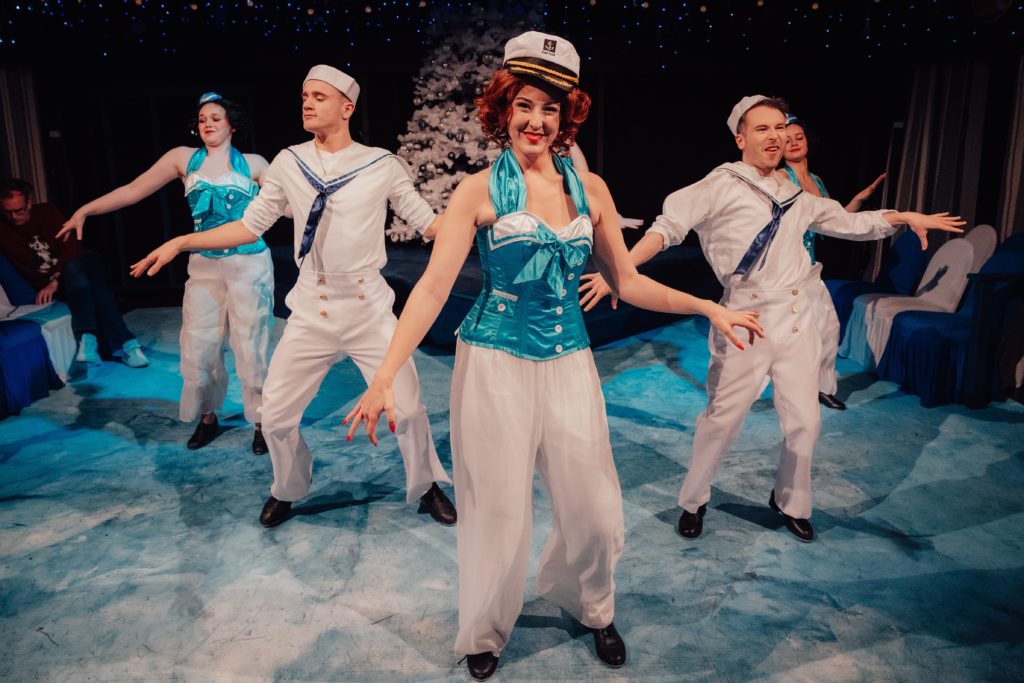
Alexandra Mather’s Reno Sweeney: Leading with pizzazz in Pick Me Up Theatre’s Anything Goes. Picture: Felix Wahlberg
IF your search is for anything but pantomime on the York stage over the festive season, then go full steam ahead for Cole Porter’s swish 1934 musical, one set on a Christmas steamer, it just so happens.
Pick Me Up Theatre supremo Robert Readman is on design duty (as well as in producer and co-choreographer mode), fitting out the Theatre@41 auditorium with blue-and-white seating on the deck of the SS American, the audience placed port or starboard side in a traverse setting.
The upper deck, as it were, likewise fills the mezzanine level with more seating in familiar sea-faring livery.
Add two white-frosted Christmas trees on raised platforms at either end that open up to turn into beds, and Theatre@41 looks a picture, a picture that has you wanting to join this fast-moving, fizzing, funny and fun party.
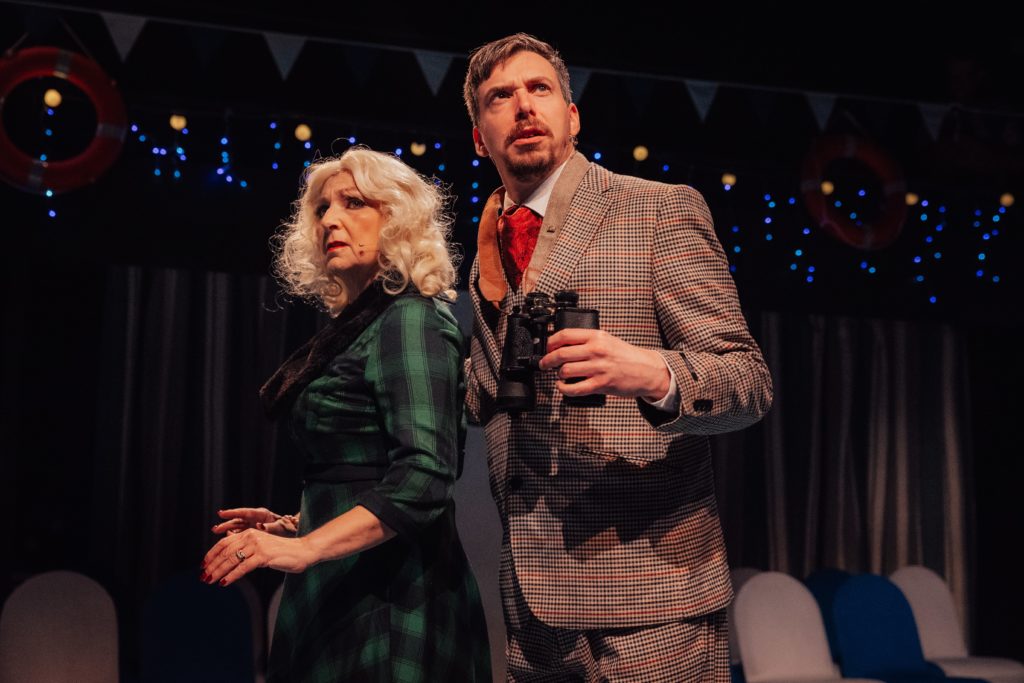
Susannah Baines’s Evangeline Harcourt and Mark Simmonds’s Elisha Whitney in Pick Me Up Theatre’s Anything Goes. Picture: Felix Wahlberg
Andrew Isherwood is at the helm, steering Porter’s Anything Goes with a keen eye for comic as well as dancing rhythm, working in tandem with chief choreographer Ali Kirkham, whose CV reveals her past days on cruise ships.
On board is a cast that combines plenty of the cream of York’s theatre world with two new arrivals, Fergus Powell and Thea Fennell, who moved up from Cambridge only two months ago. Two classically trained voices are to the fore too: York Opera leading lady Alexandra Mather leading a musical theatre production for the first time with aplomb as Reno Sweeeney and University of York graduate Claire Gordon-Brown singing delightfully as Hope Harcourt.
As the SS American makes its stately way from New York to London under the ever watchful eye of Adrian Cook’s ship’s Captain, Mather’s nightclub singer-cum-evangelist Reno glides coolly hither and thither, as if Dorothy Parker were penning her lines.
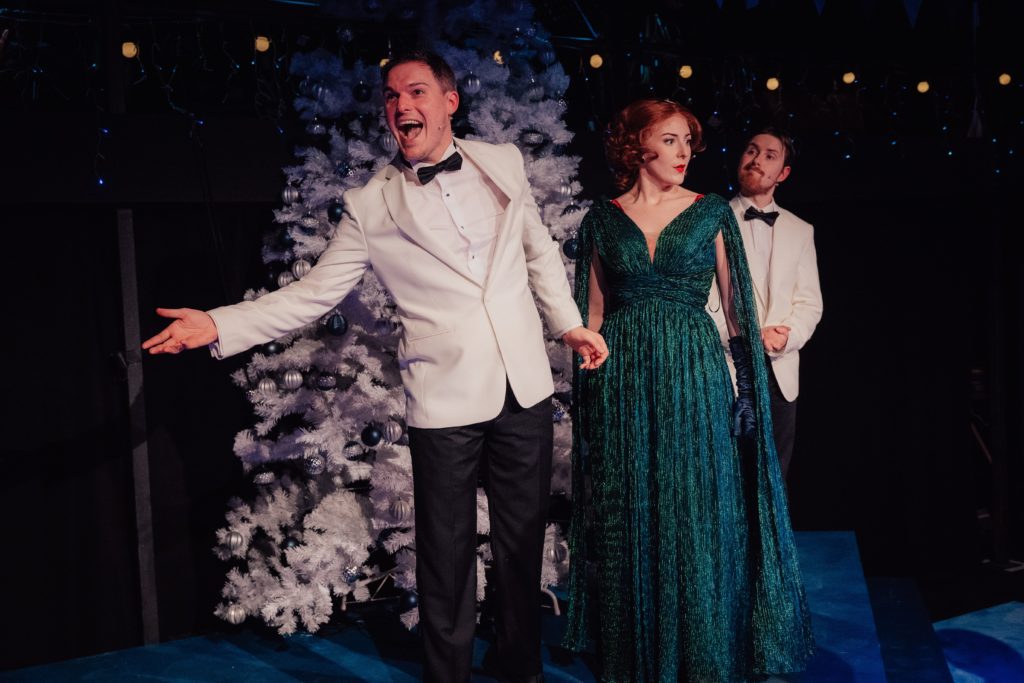
Adam Price’s Billy Crocker, left, Alexandra Mather’s Reno Sweeney and Fergus Powell’s Moonface Martin in Anything Goes. Picture: Felix Wahlberg
Newly red-headed and looking every inch the Thirties’ part, matched by her Angels (Chloe Branton, Sophie Curry and Sophie Kemp), Mather’s Reno is working with her forlorn buddy, Wall Street broker Billy Crocker (Adam Price, lovely singing tone), the stowaway desperate to woo his beloved Hope Harcourt (Gordon-Brown’s role).
Porter, as elegant as eloquent in his writing, has such fun with Crocker’s character, who must take on myriad disguises not to blow his stowaway status. Price, light of comic touch, is a joy, particularly when faced with that old Skakespearean comic device of the mistaken identity.
He works well not only with Mather’s Reno, queen of the acid comment, but also with Powell’s Moonface Martin, Public Enemy #13 conman, who joins Reno in backing Crocker’s cause, while also seeking to elude detection. Both have to keep their wits about them, and Porter gives them lines plenty to fit that bill.
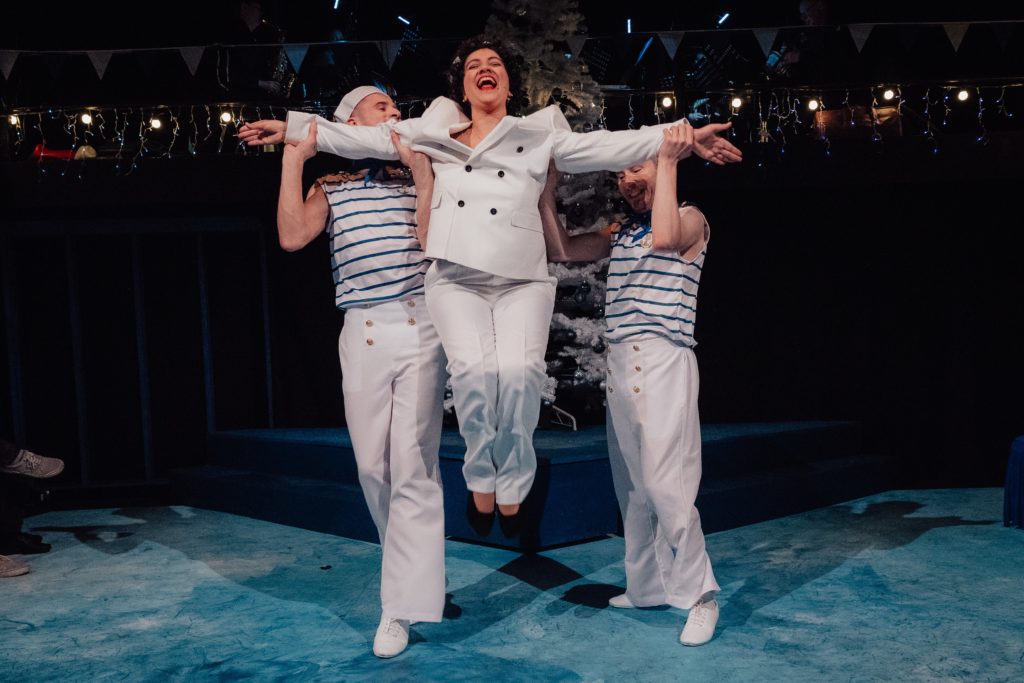
Thea Fennell’s Erma Latour is given a lift-off by Charlie Fox, left, and James Robert Ball’s Sailors in Pick Me Up Theatre’s Anything Goes. Picture: Felix Wahlberg
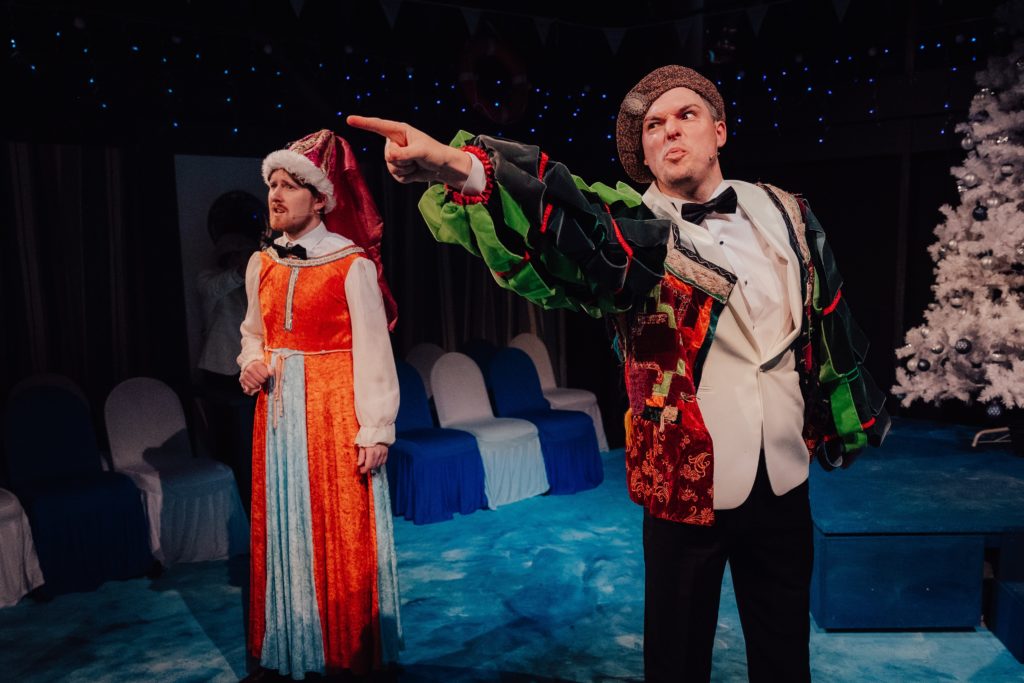
Taking on disguises: Fergus Powell’s Moonface Martin, left, and Adam Price’s Billy Crocker take on ever more extreme steps in Anything Goes. Picture: Felix Wahlberg
Charlie Fox, in a break from cruise-ship engagements, bonds with the equally agile James Robert Ball as a brace of nimble sailors, while Ball has a second string to his comedic bow as the righteous Minister Henry T Dobson, something of a turbulent priest to rock the boat.
Neil Foster first played Hope’s fiancé, Sir Evelyn Oakleigh, the only Englishman aboard, at the Joseph Rowntree Theatre all of 27 years ago, and the role fits him like a familiar glove, immaculately attired, thoroughly decent, delighted by American sayings. You might call Sir Evelyn nice bit dim in that Harry Enfield way, but Foster’s characterisation is more than mere caricature, and he revels in Sir Evelyn’s sudden revelation.
Susannah Baines’s grand mama Evangeline Harcourt (a role shared with Beryl Nairn), Mark Simmonds’s resolute Elisha Whitney and Leo Portal’s busybody Ship Purser are all in fine form too, and we are sure to see more of Pick Me Up debutante Fennell on the evidence of her Erma Latour, who’s a scream. Zachary Stoney and Reuben Baines, from Pick Me Up’s autumn hit production of Bugsy Malone, add a youthful spark here too as Spit and Dippy.
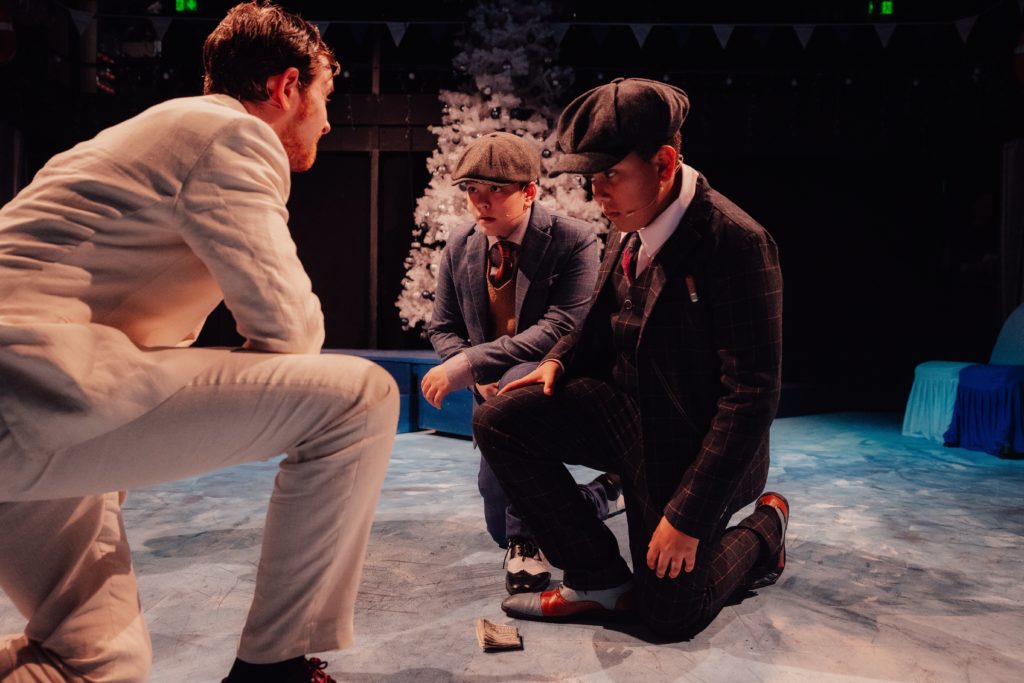
Fergus Powell’s Moonface Martin, left, with Reuben Baines’s Dippy, centre, and Zachary Stoney’s Spit. Picture: Felix Wahlberg
Deputising for musical director John Atkin, who was on Father Christmas duty elsewhere on press night, Nigel Ball led the band as merrily as Porter’s wonderful tunes demanded, while Mather, Price and co delighted in his witty lyrics.
Kirkham’s choreography is playful, stylish, thrilling, making the most of the open deck with panache and exuberance. Throughout, Mather leads with pizzazz, hitting the heights with a knockout performance that affirms she is as much at home in musical theatre as opera. Cue a fight for her services!
Pick Me up Theatre, Anything Goes, Theatre@41, Monkgate, York. Performances, 7.30pm, December 15 to 18, December 20 and December 27 to 30; 2.30pm, December 20, 21 and 27. Box office: tickets.41monkgate.co.uk.
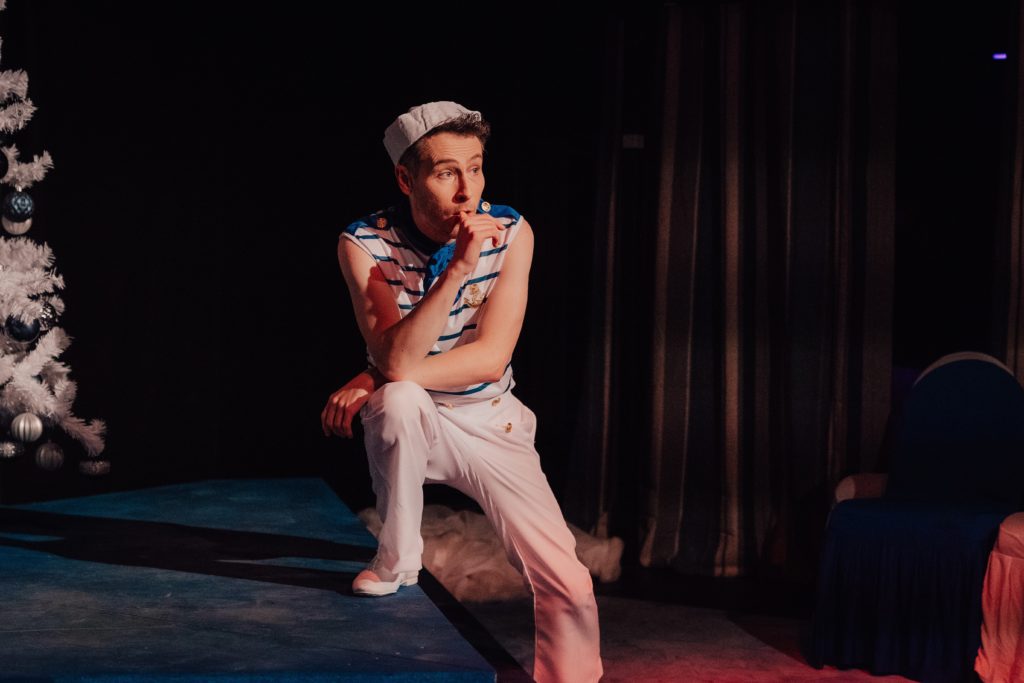
Do you bite your thumb at me, sir? James Robert Ball’s Sailor in Anything Goes

